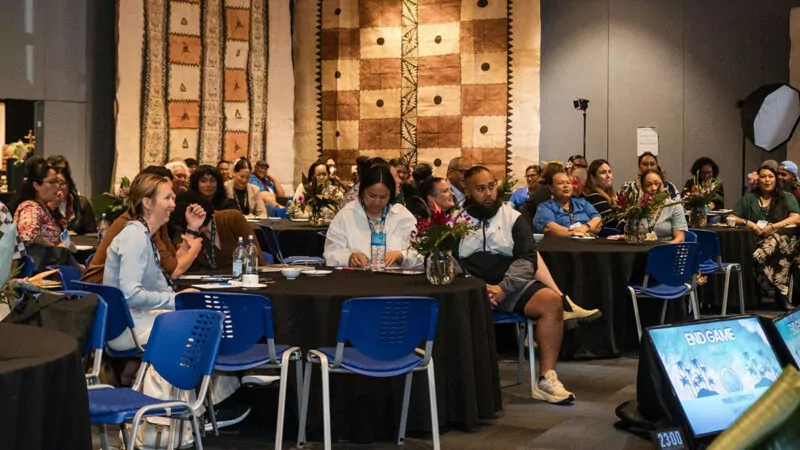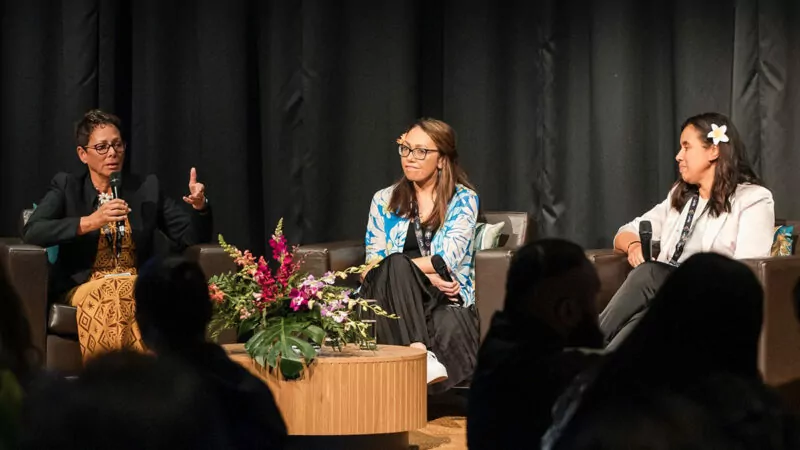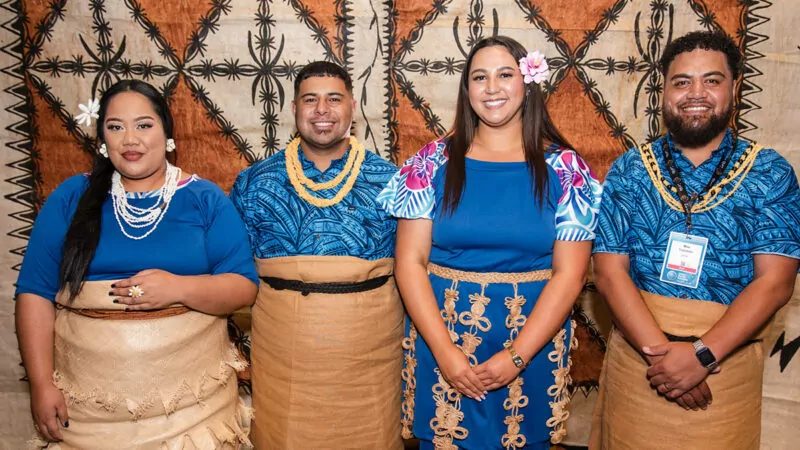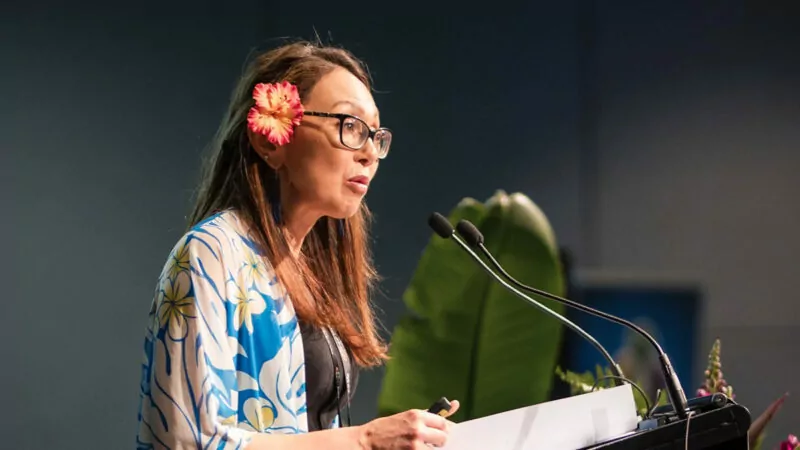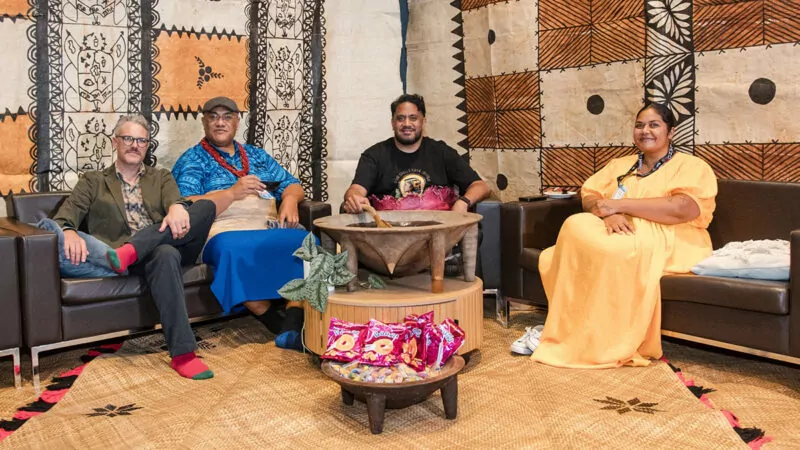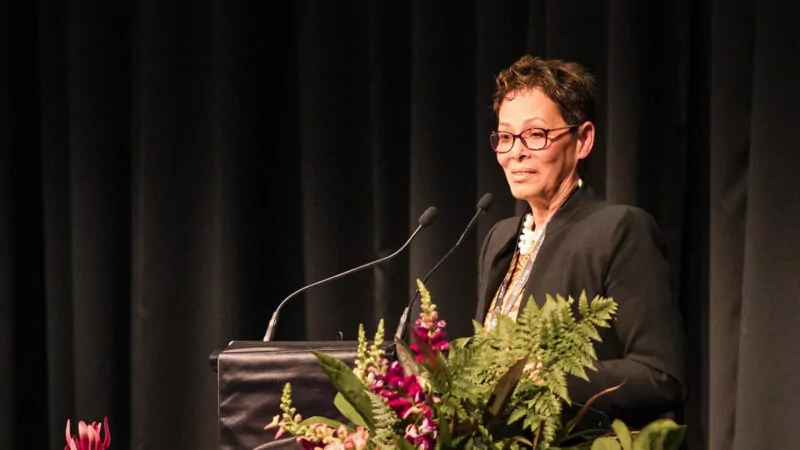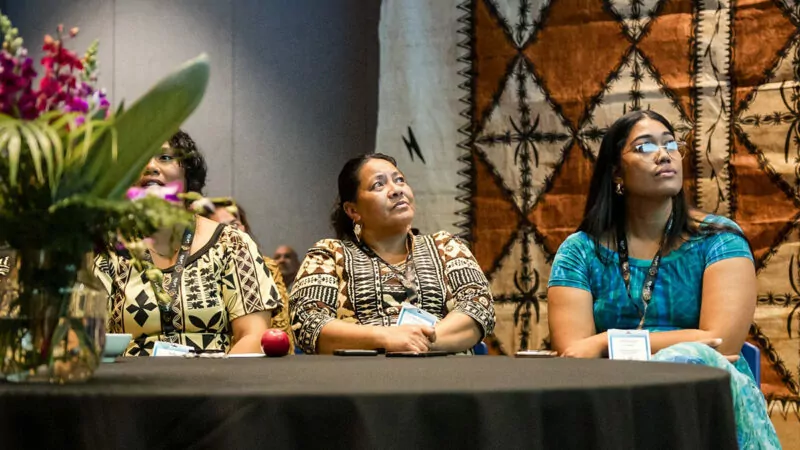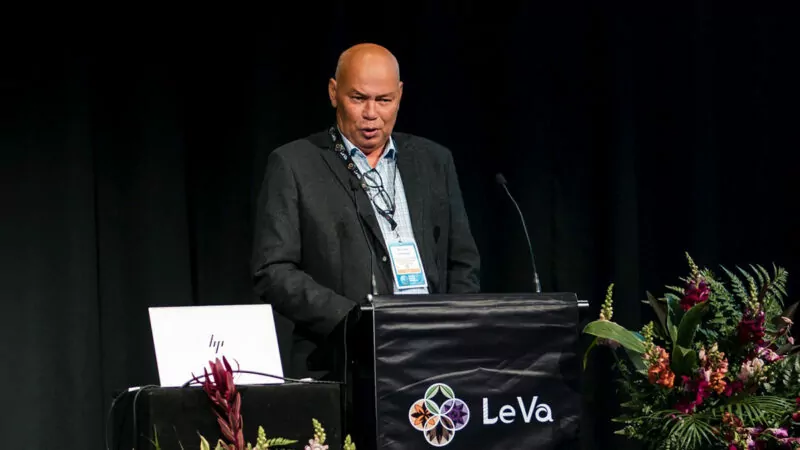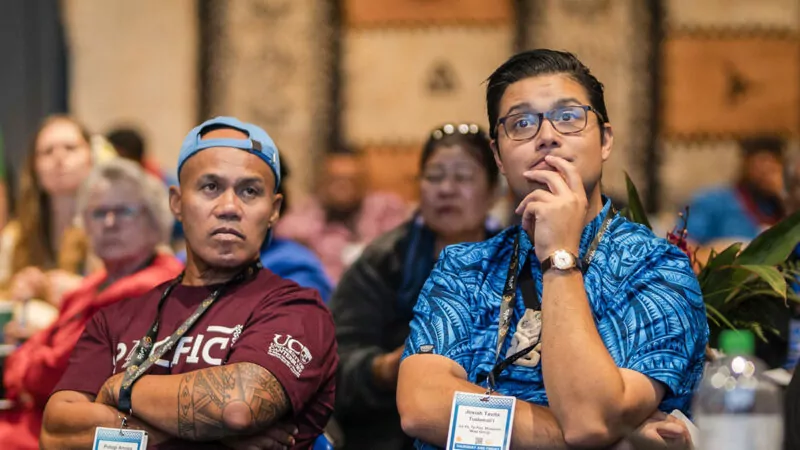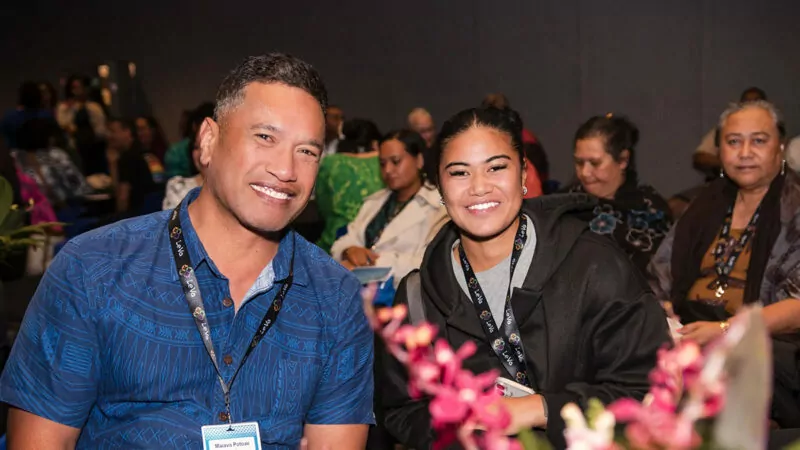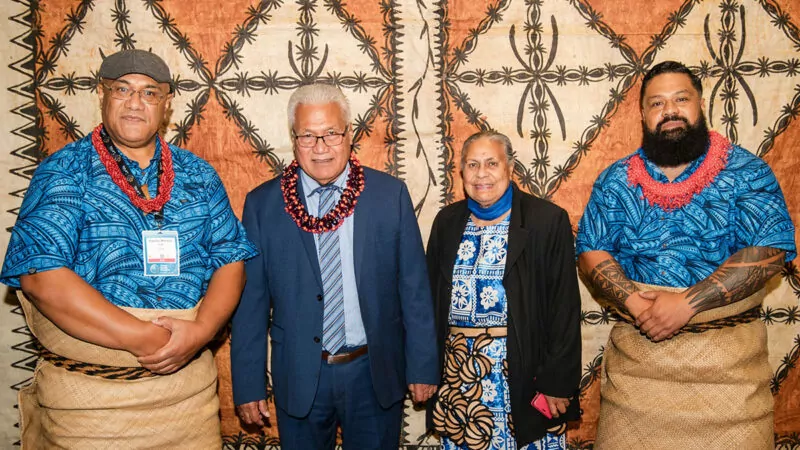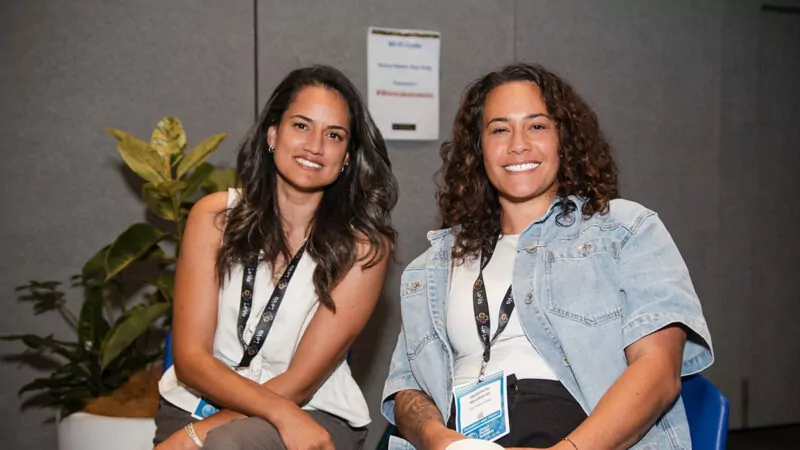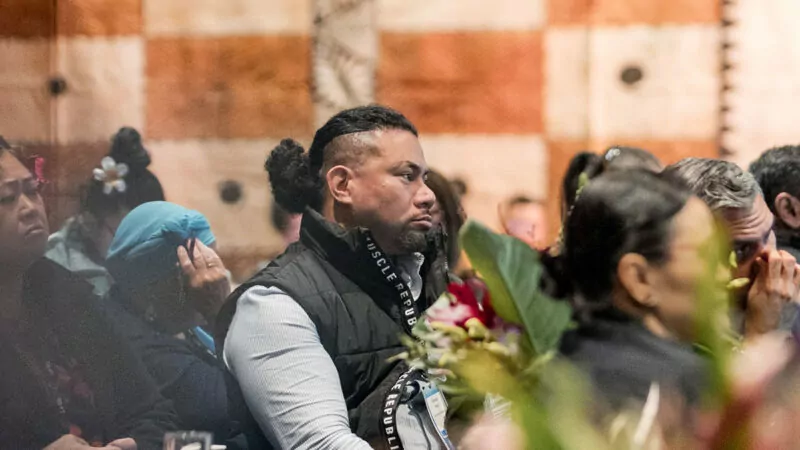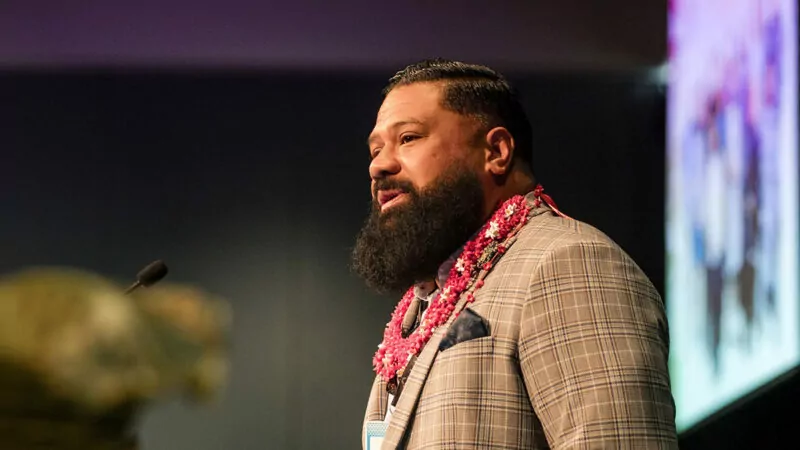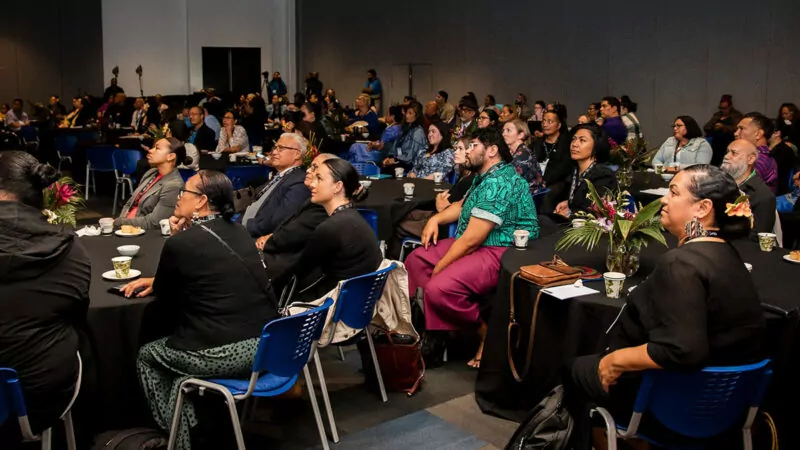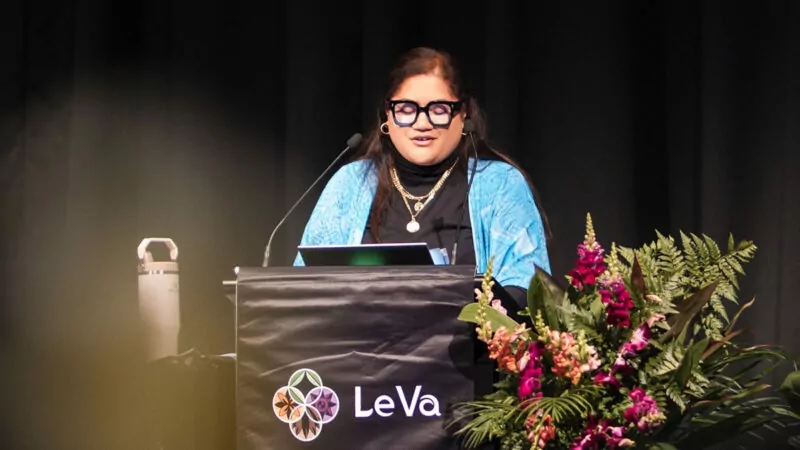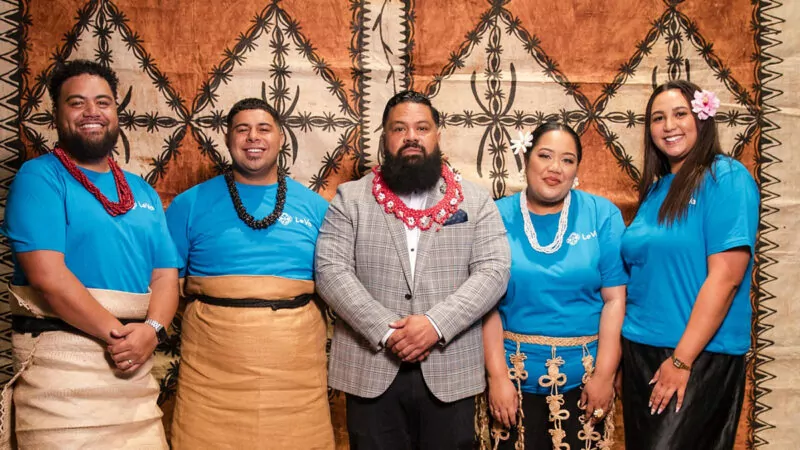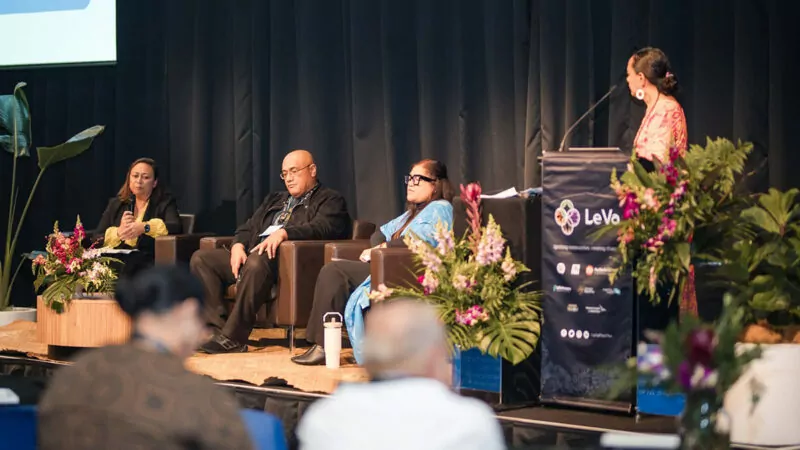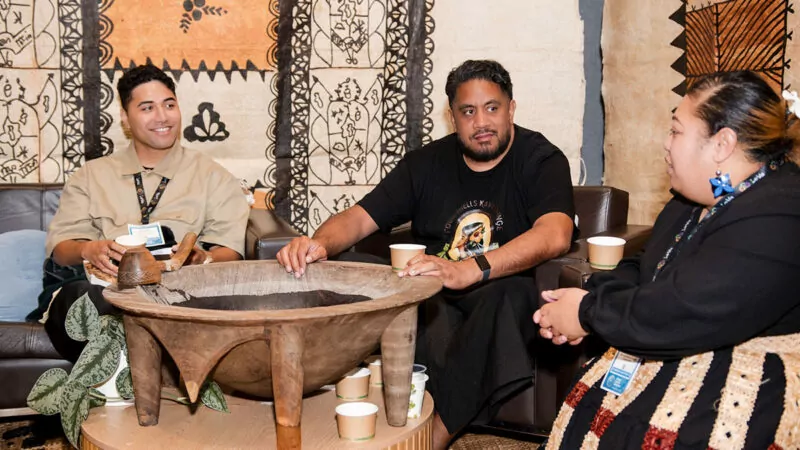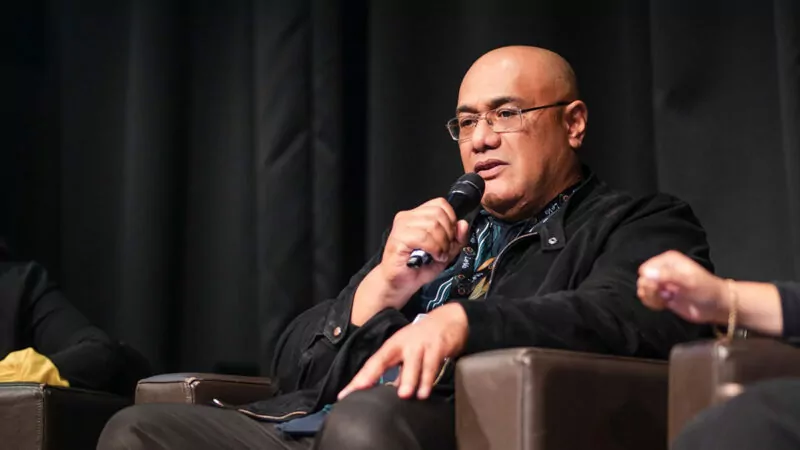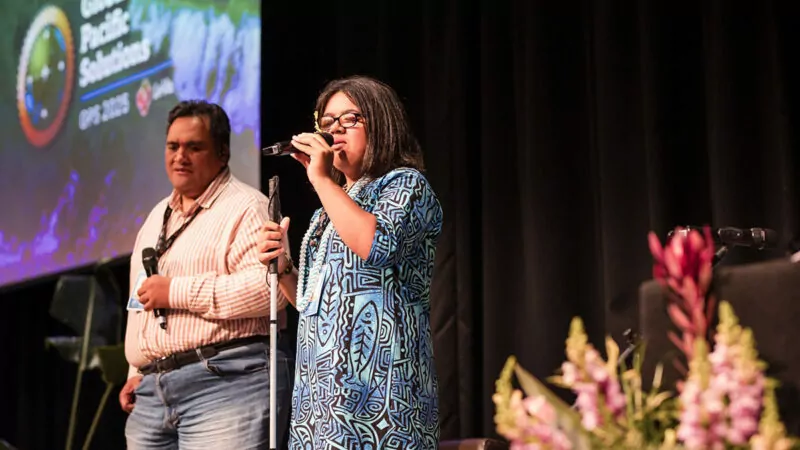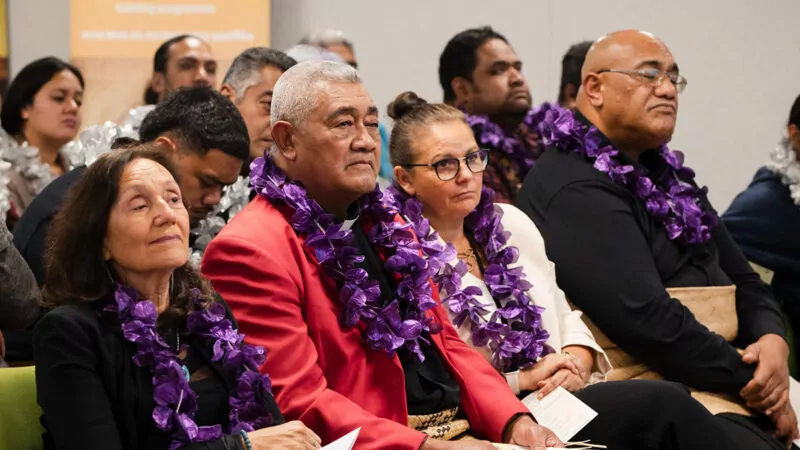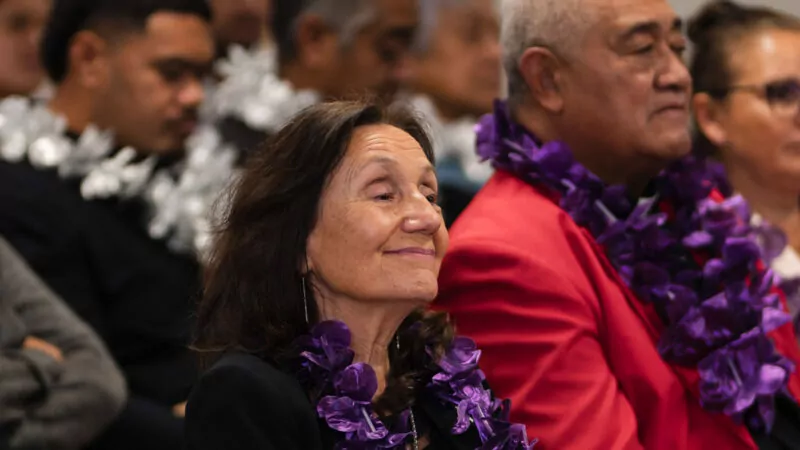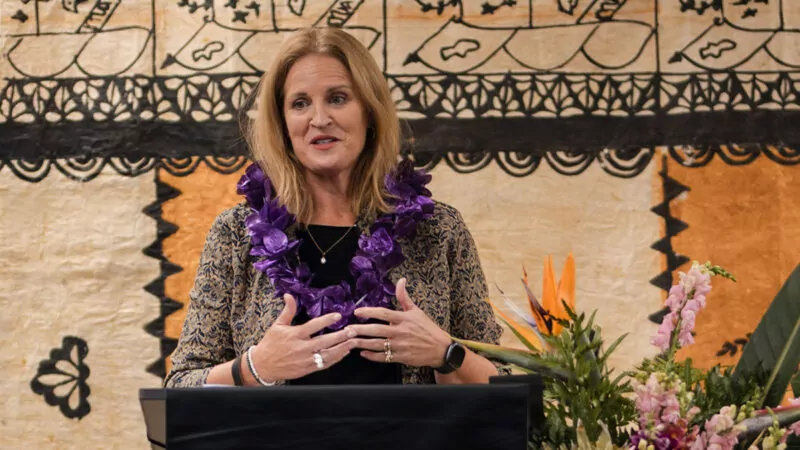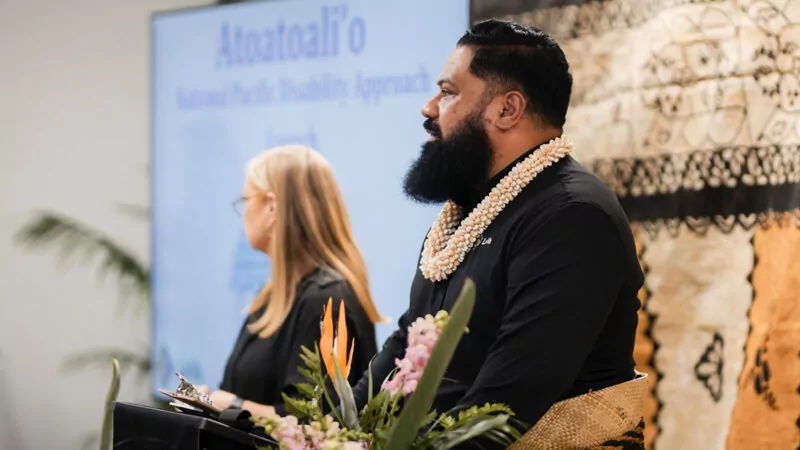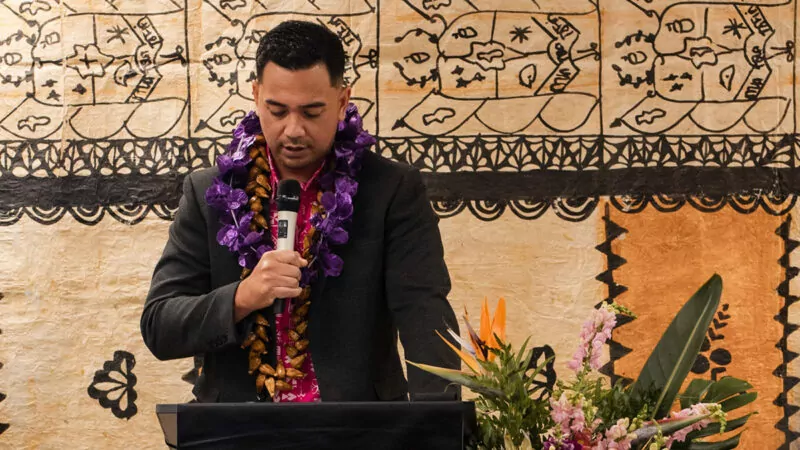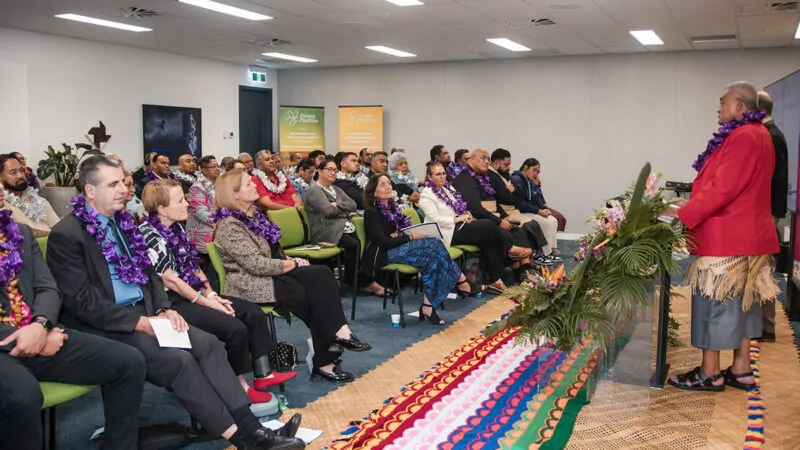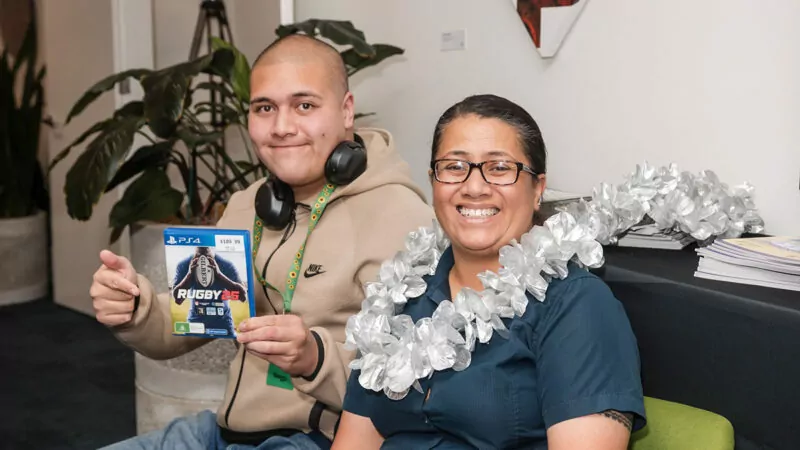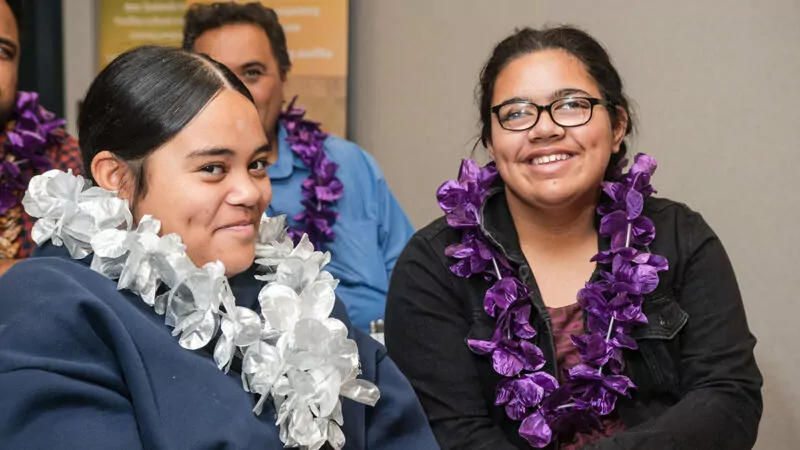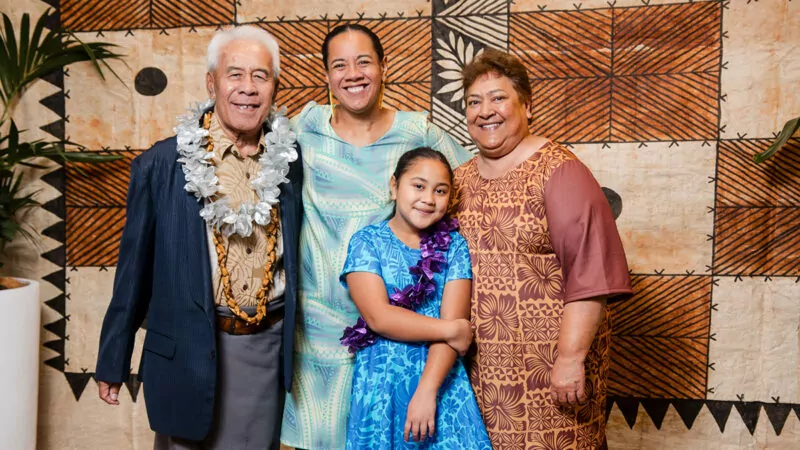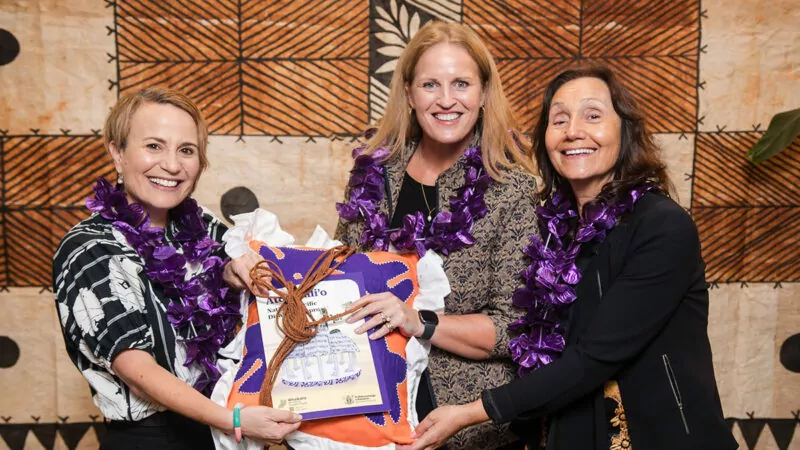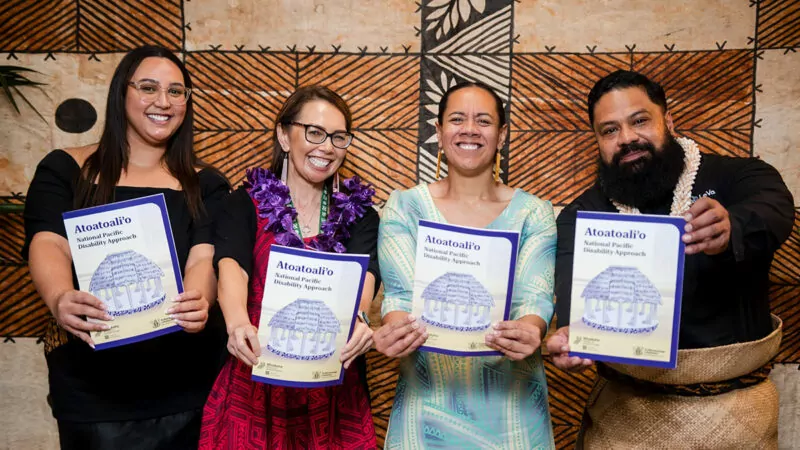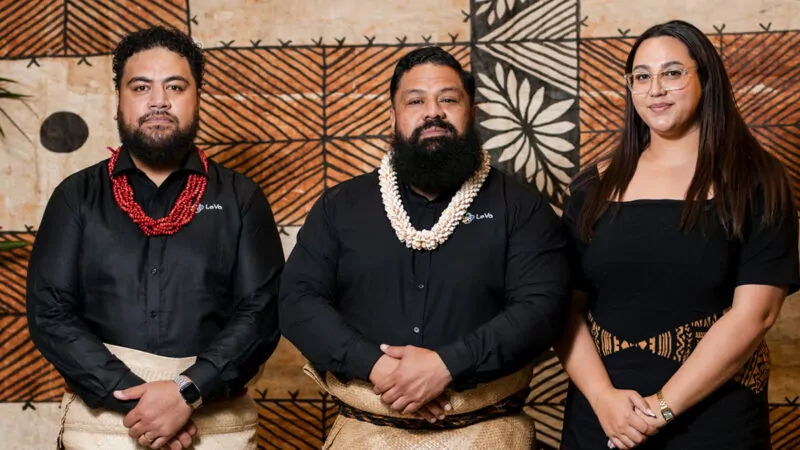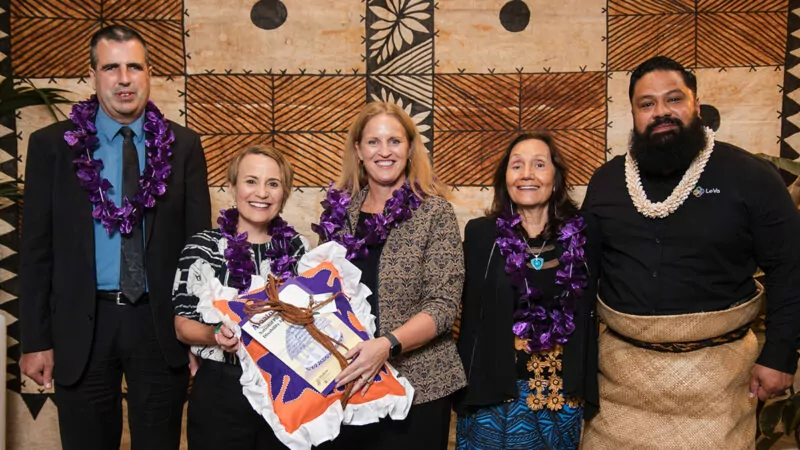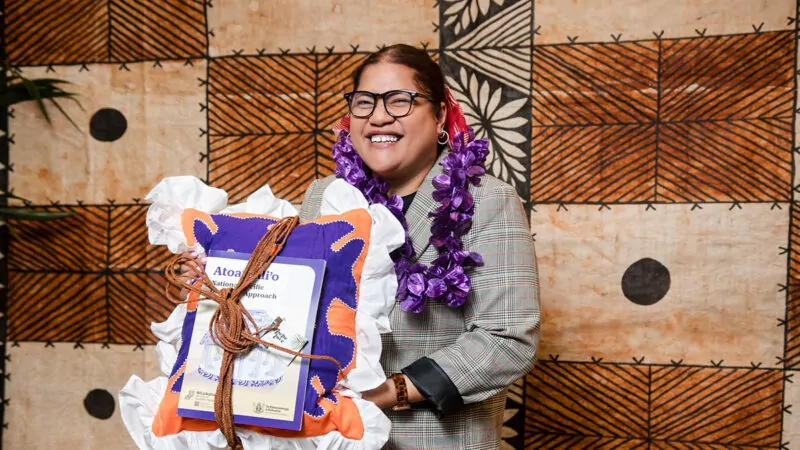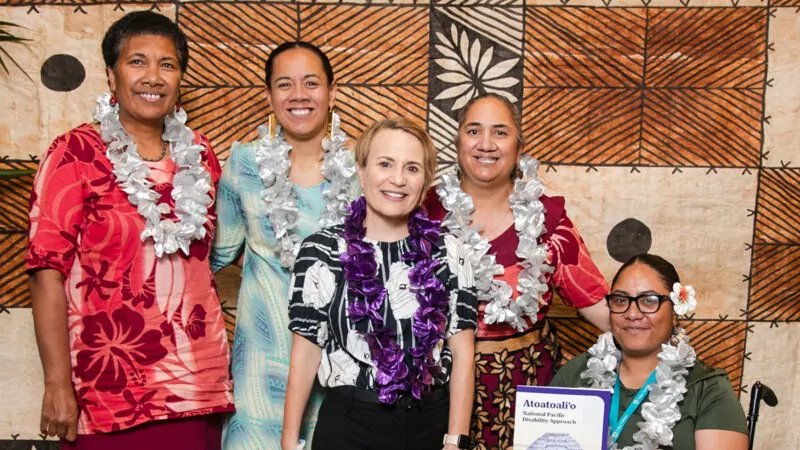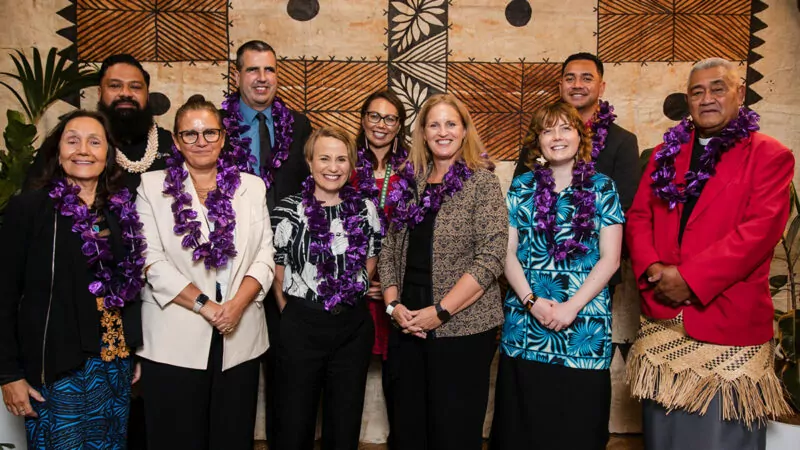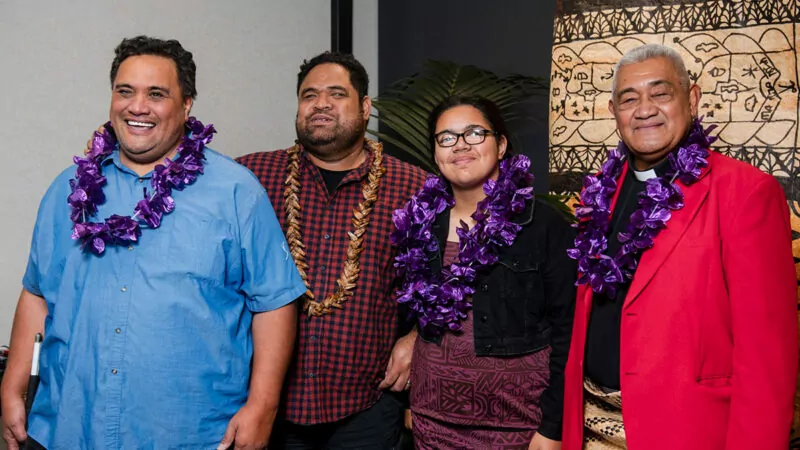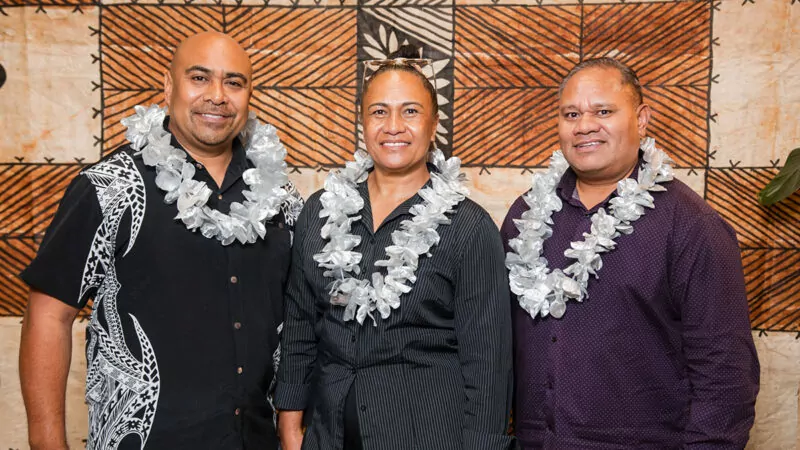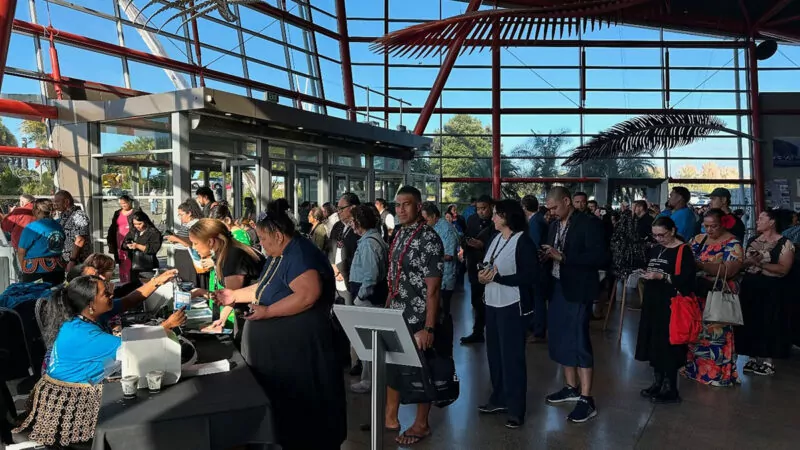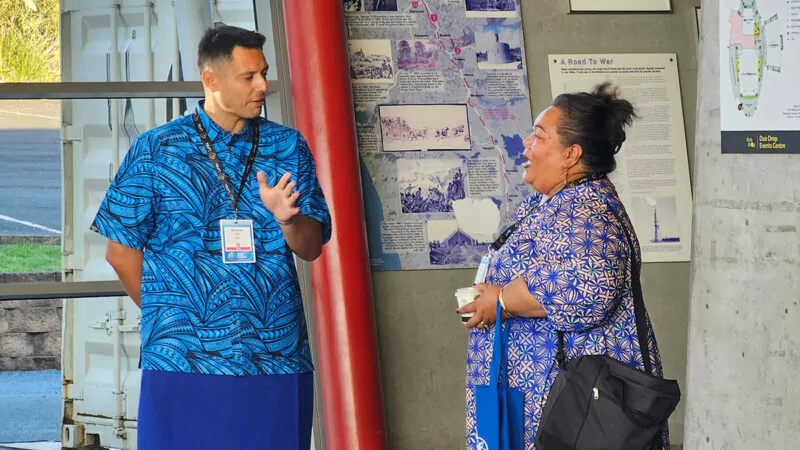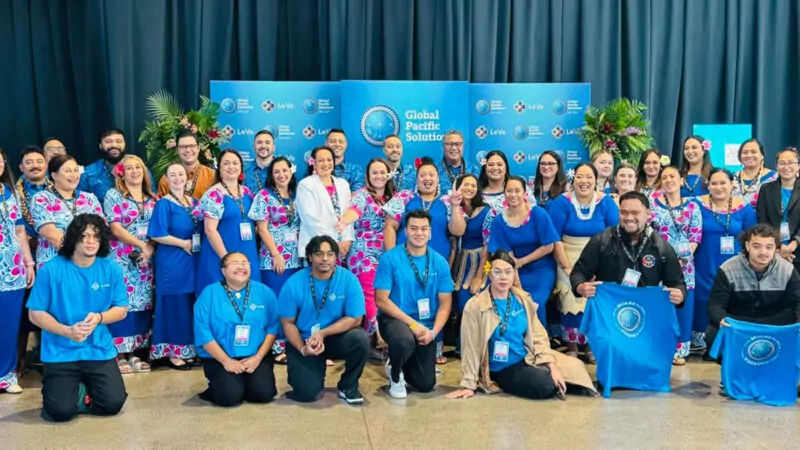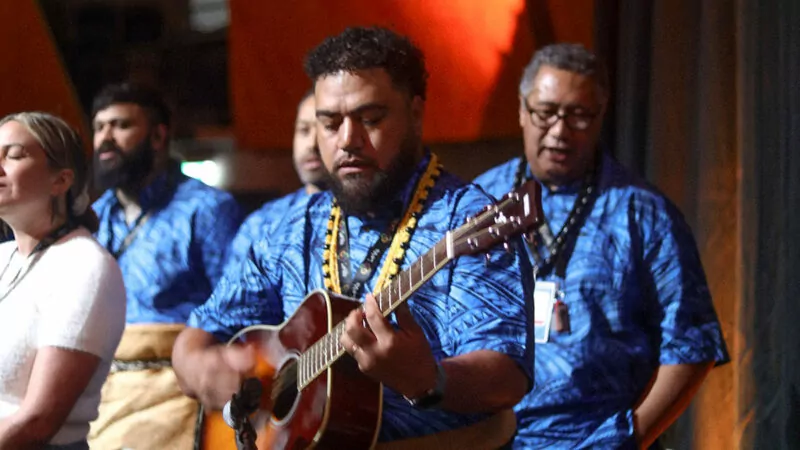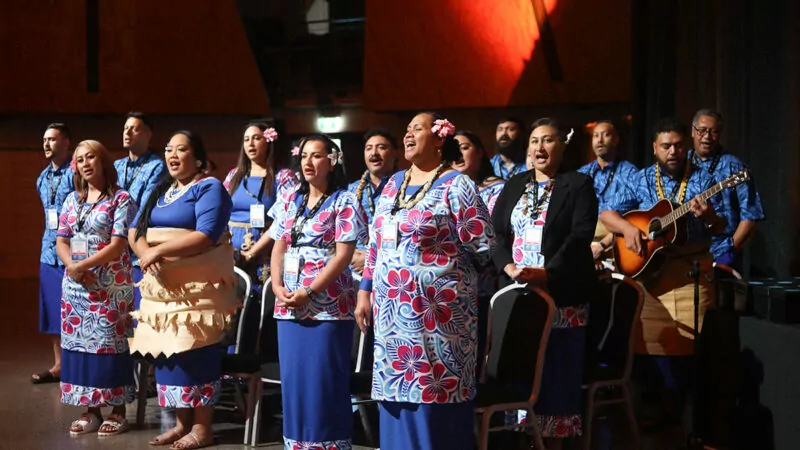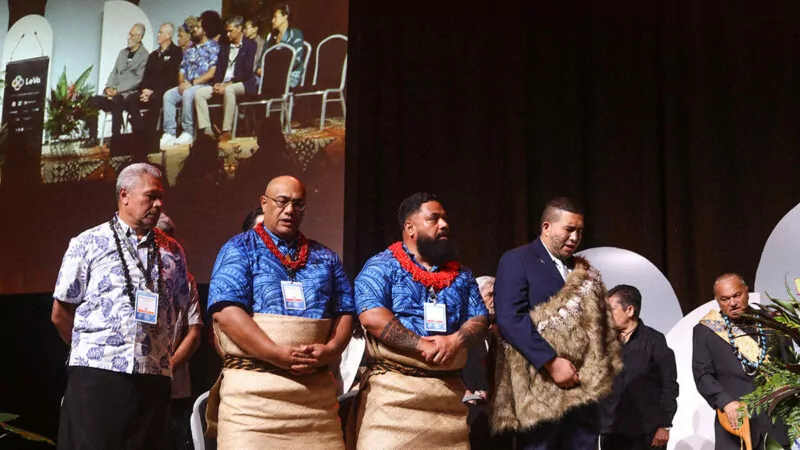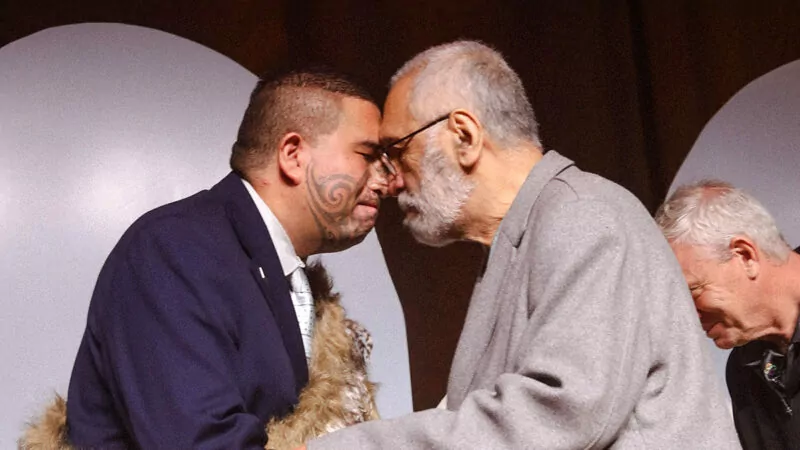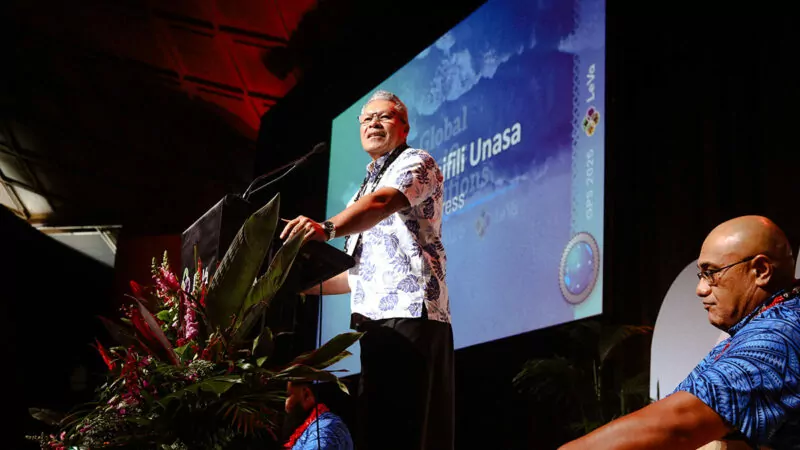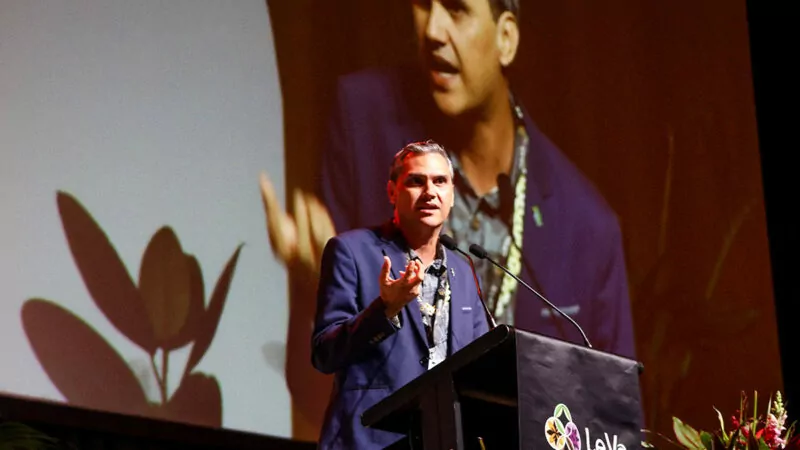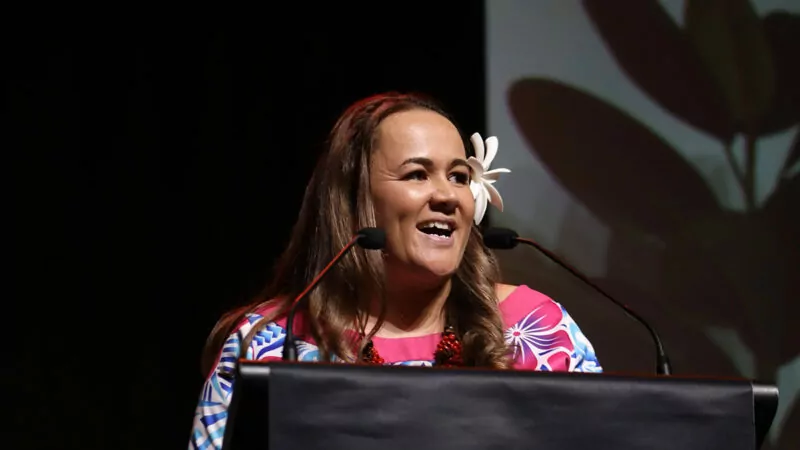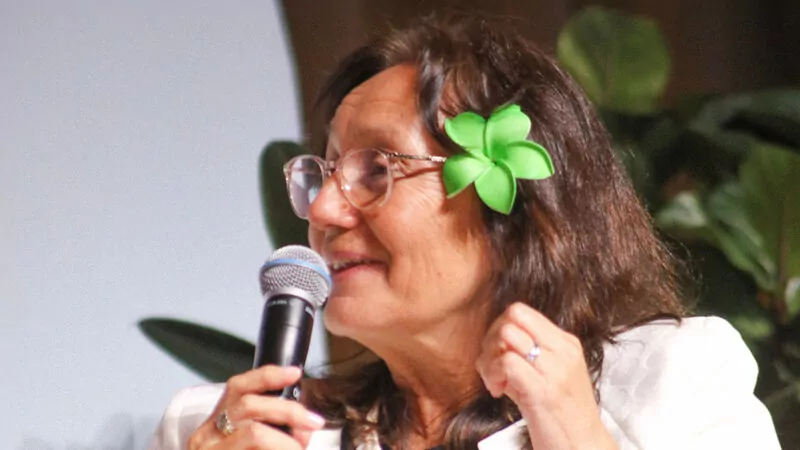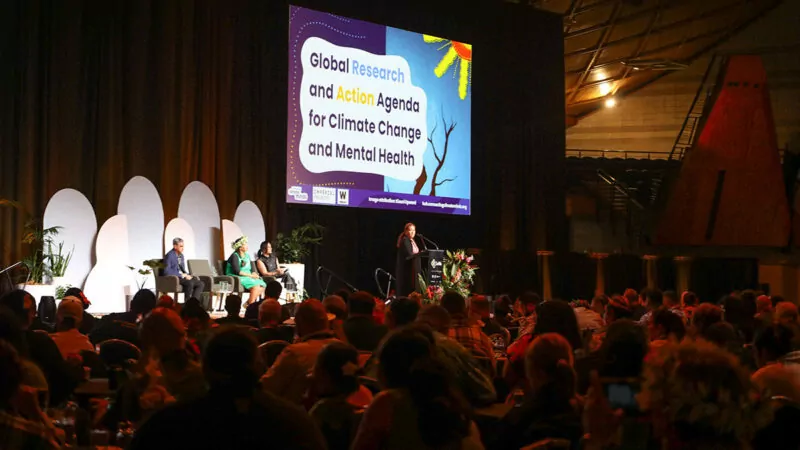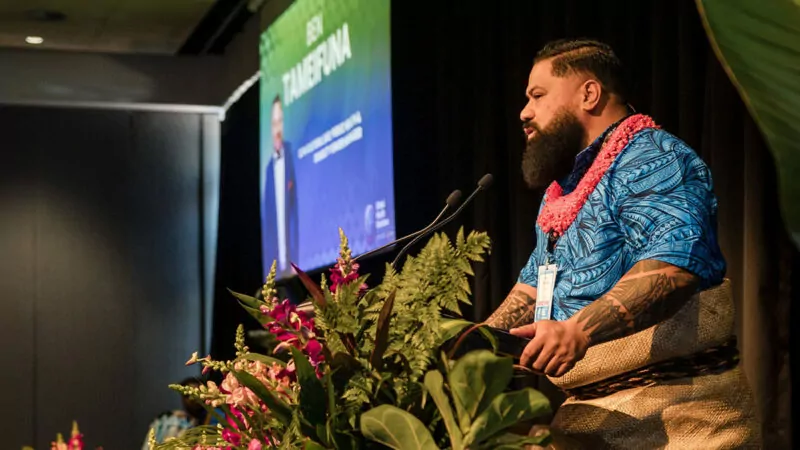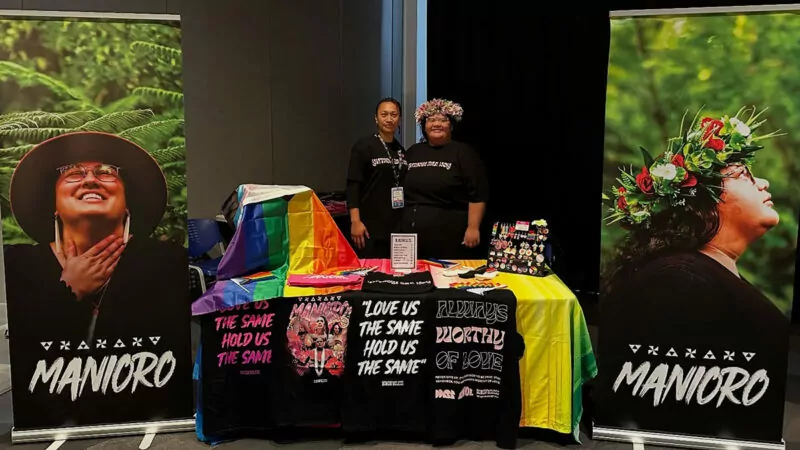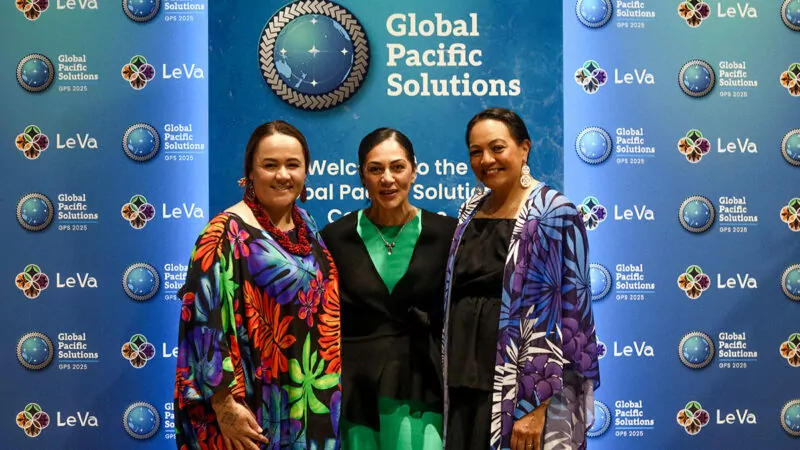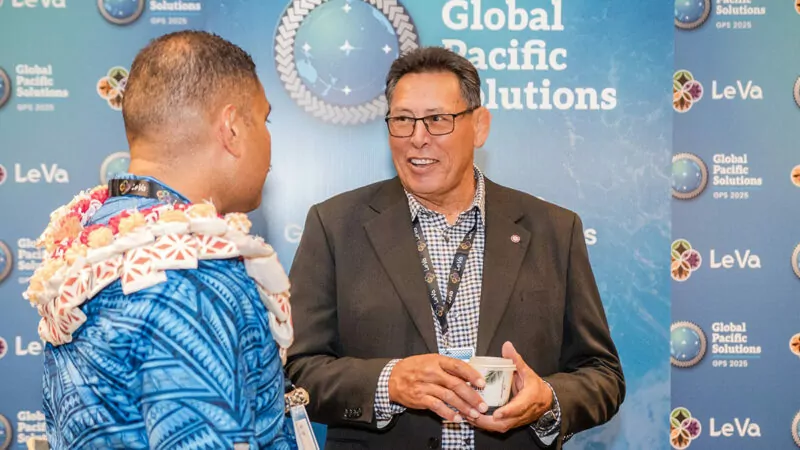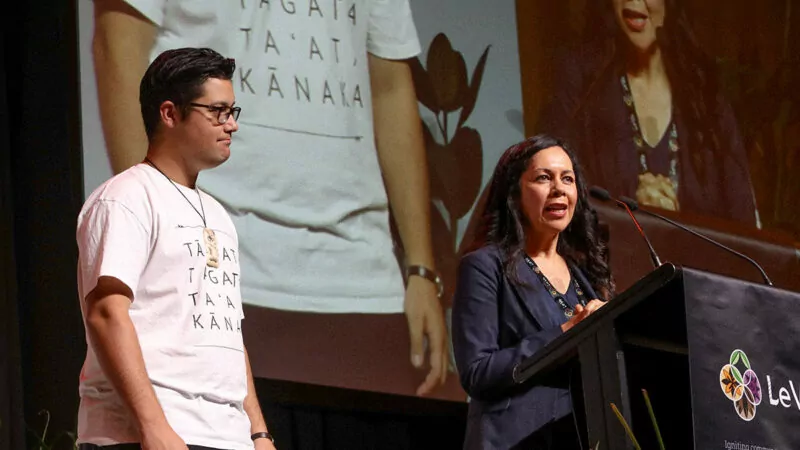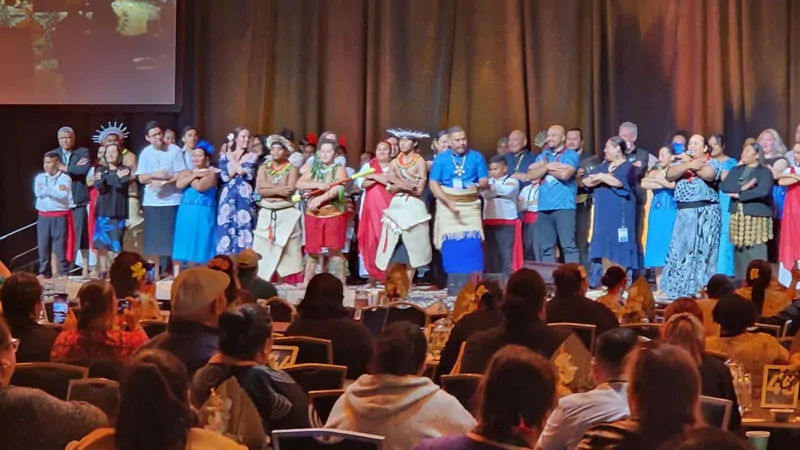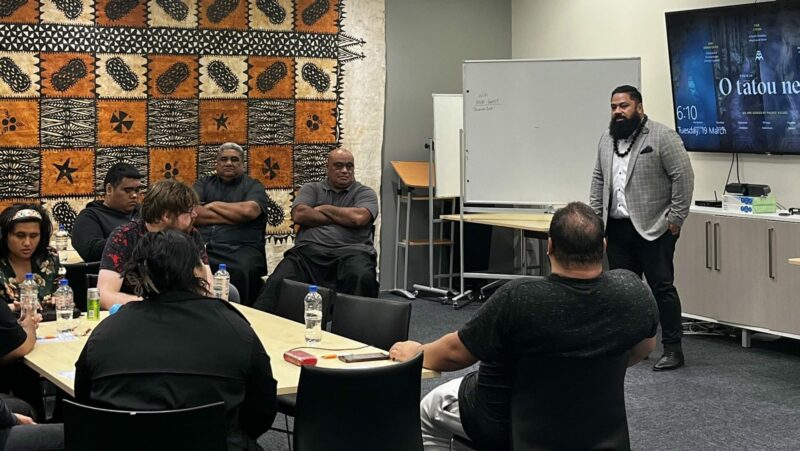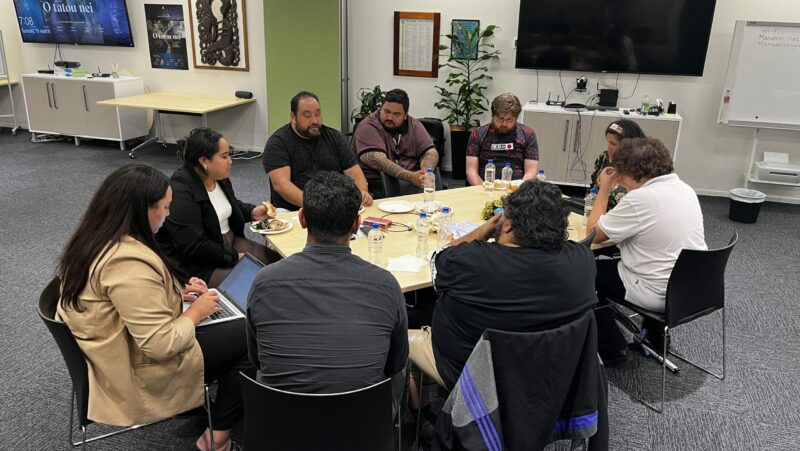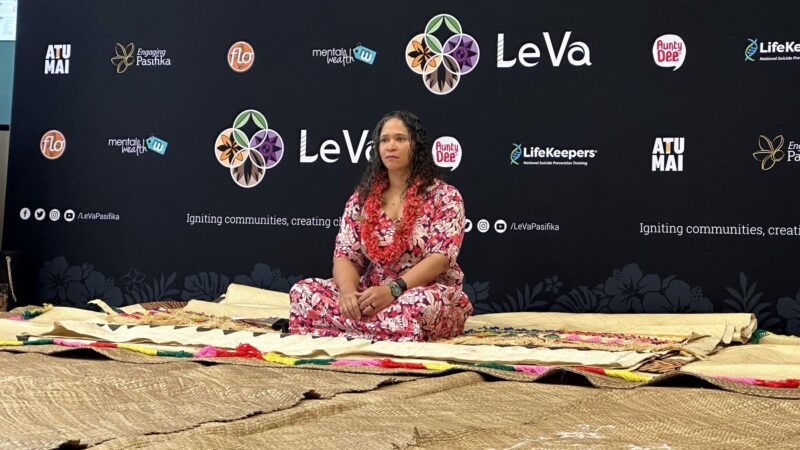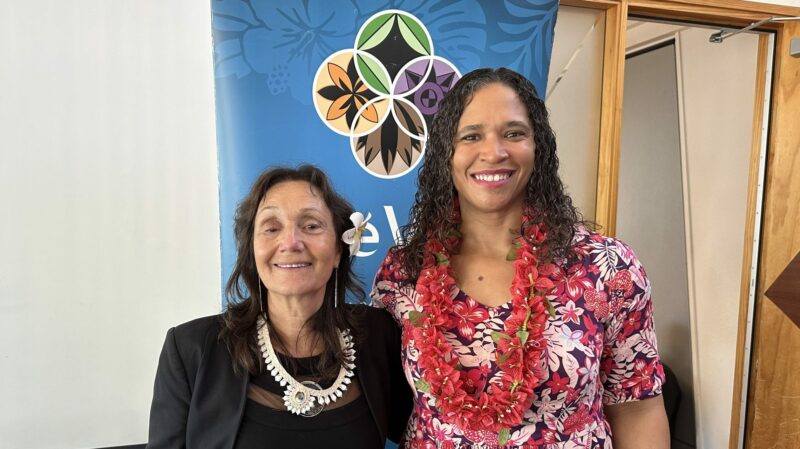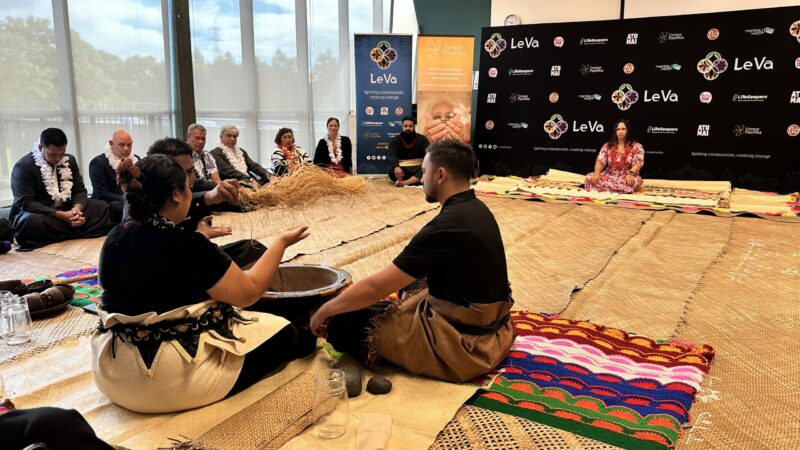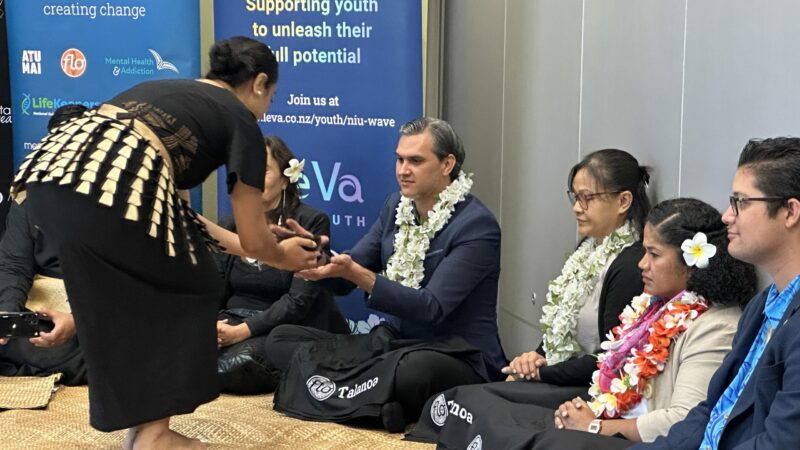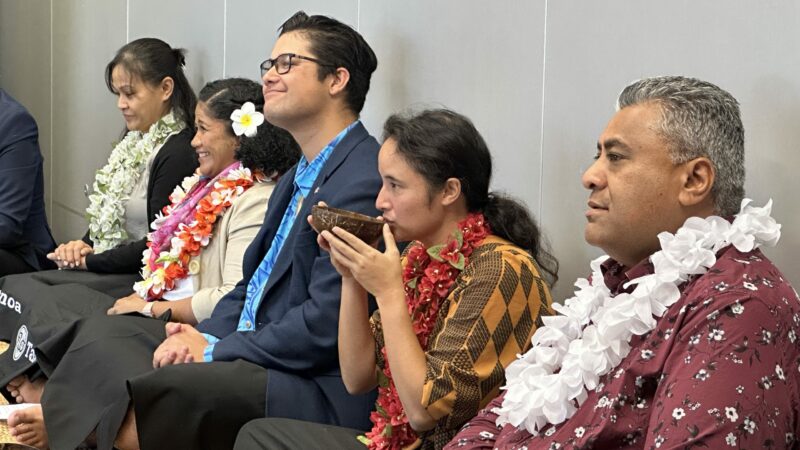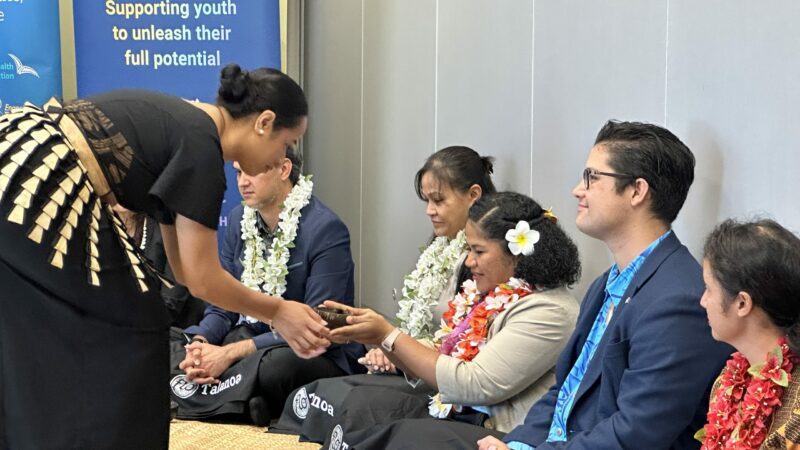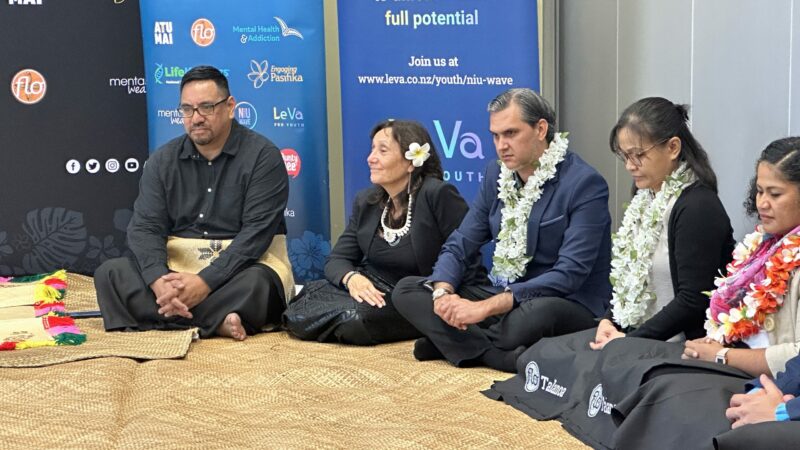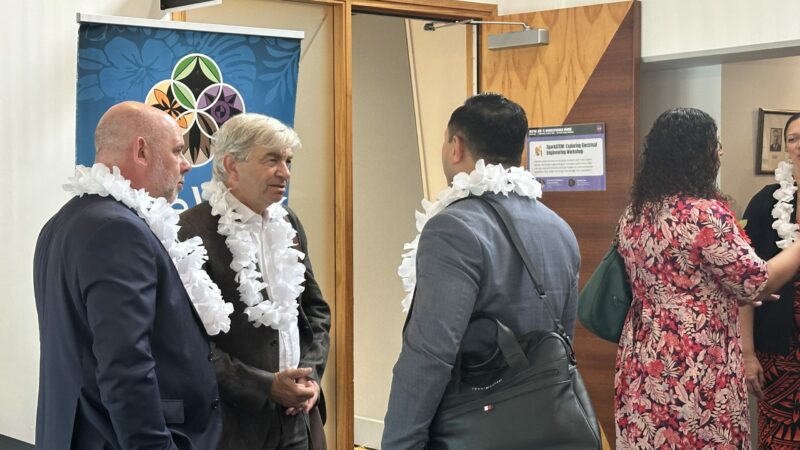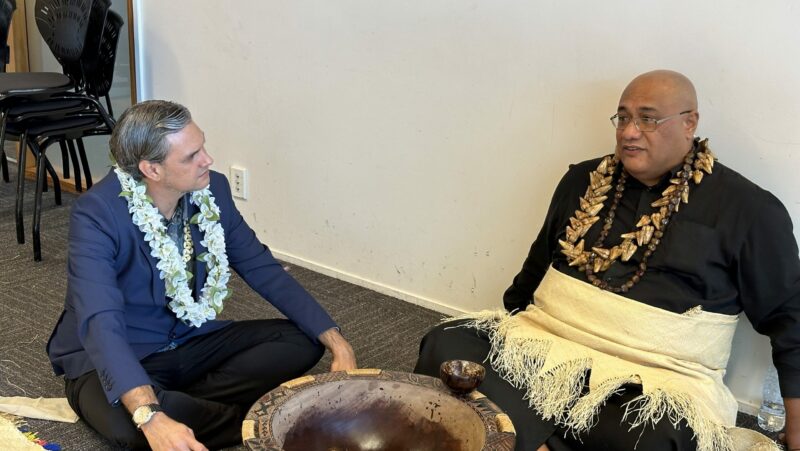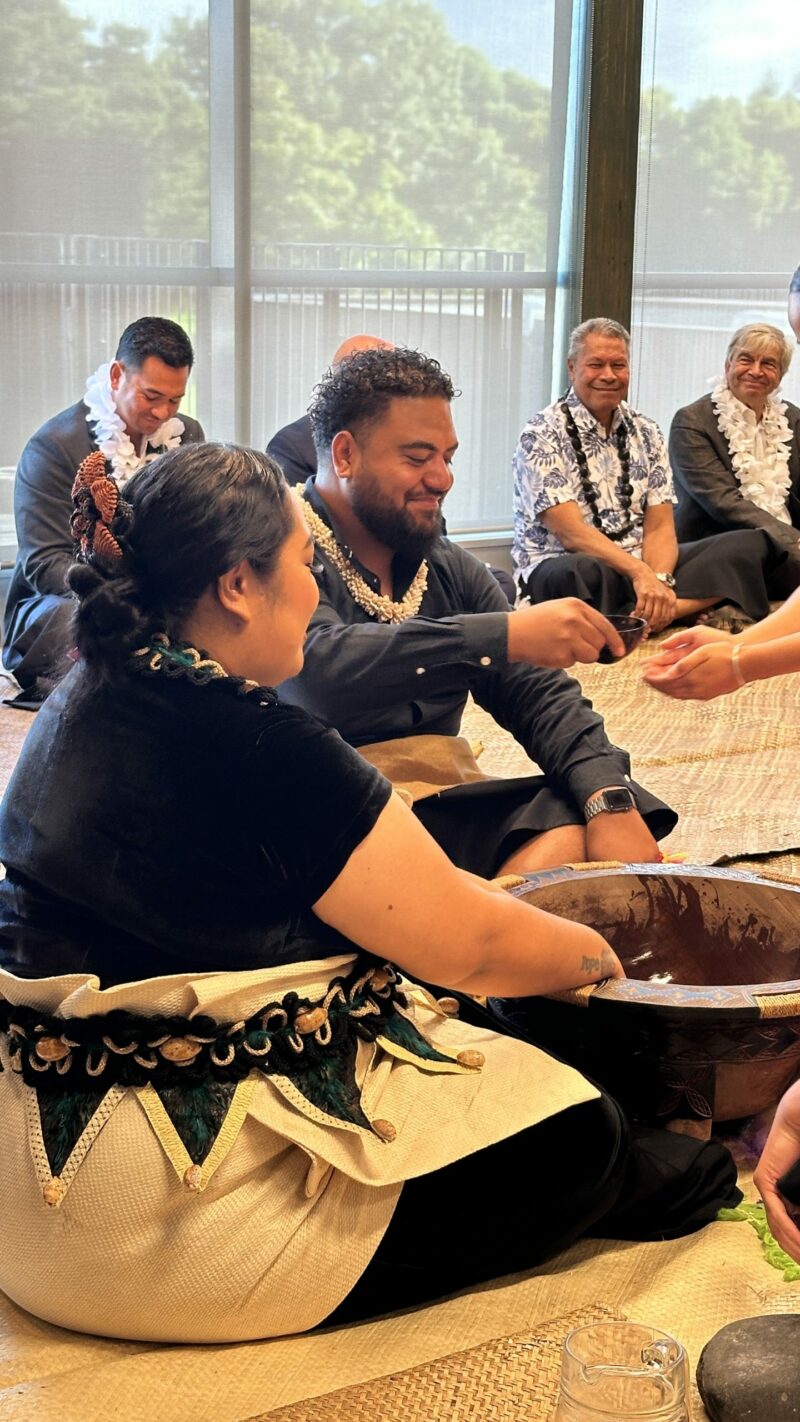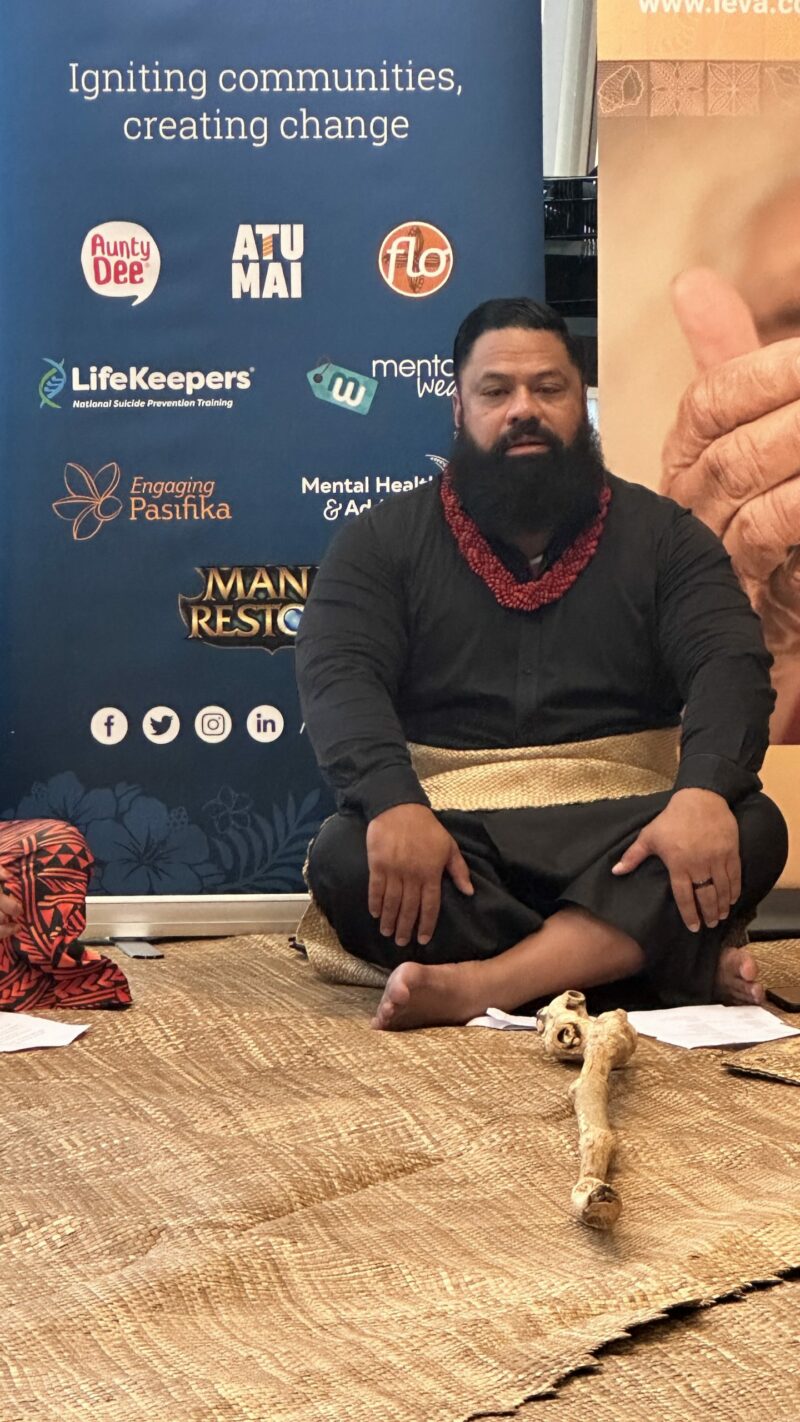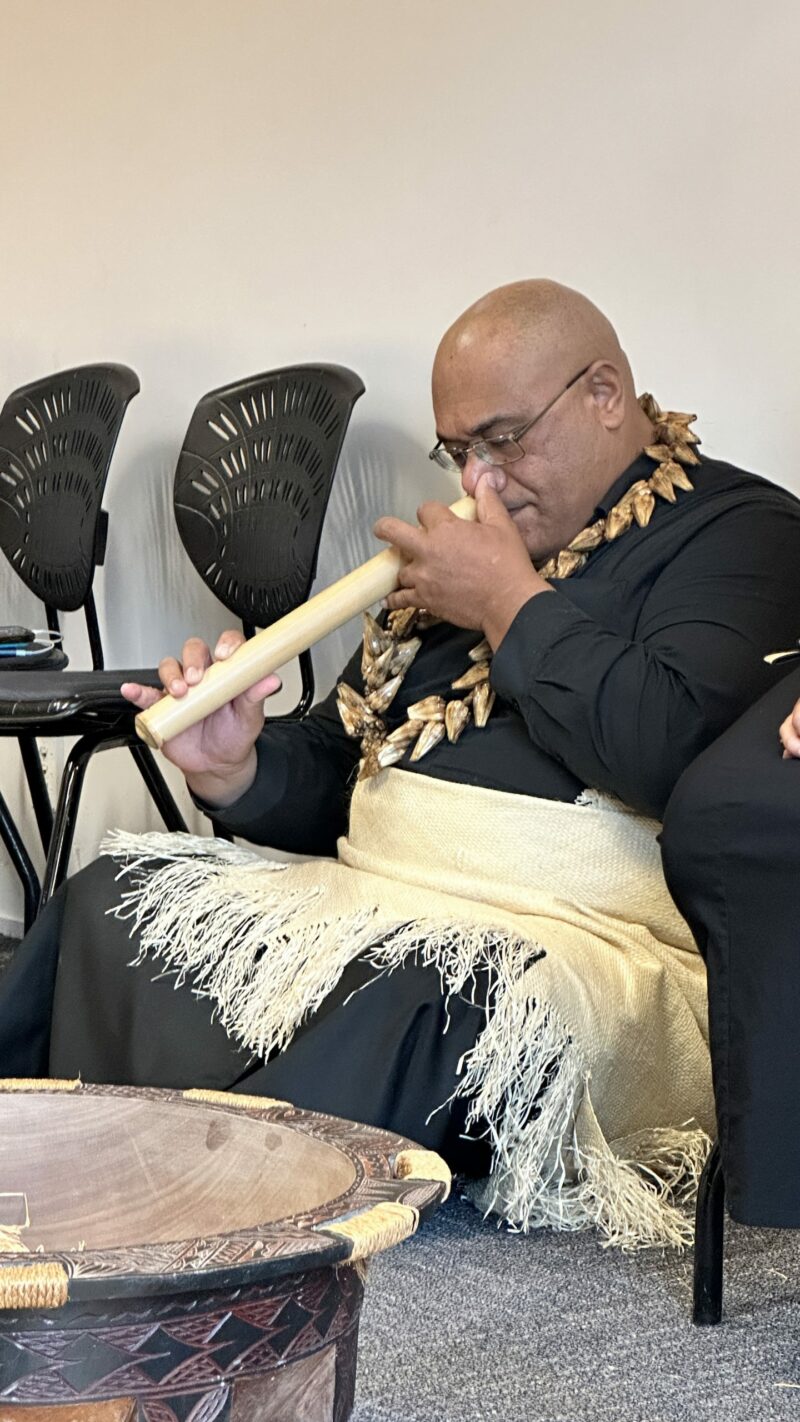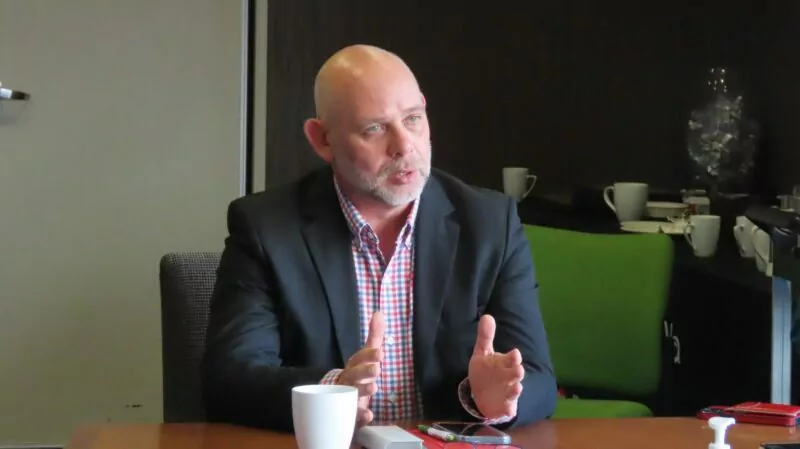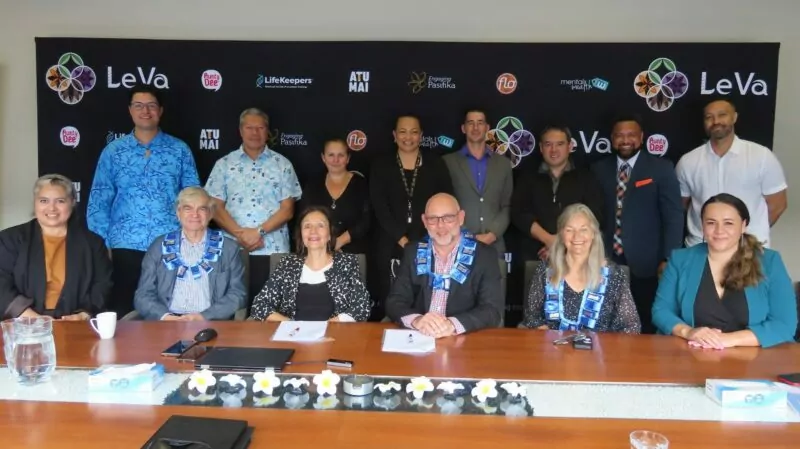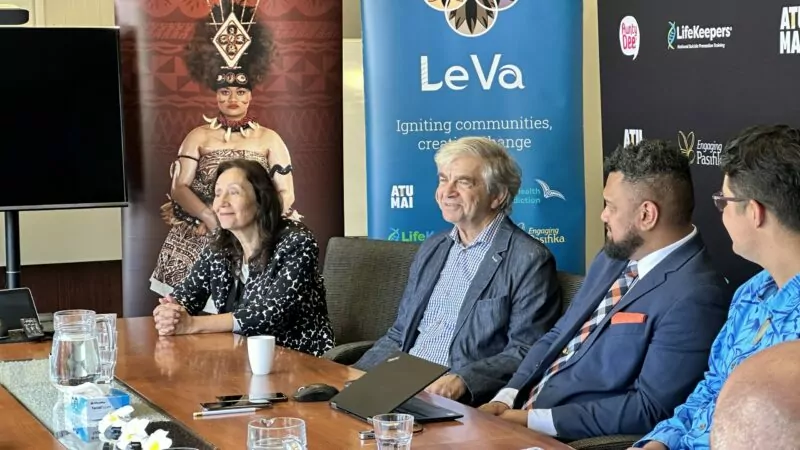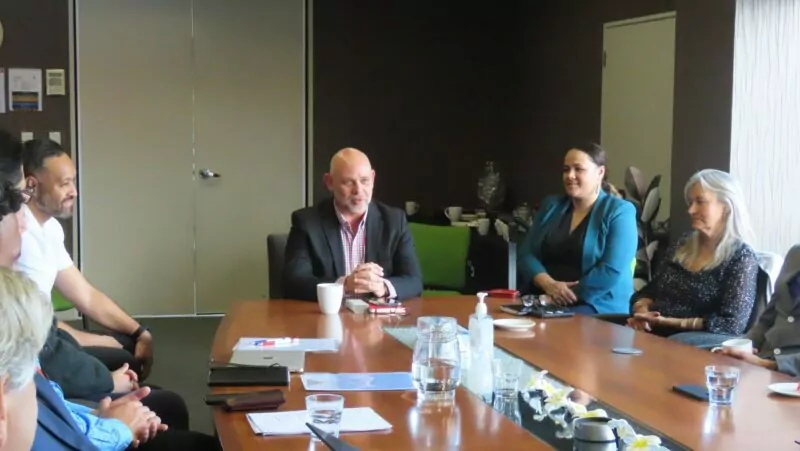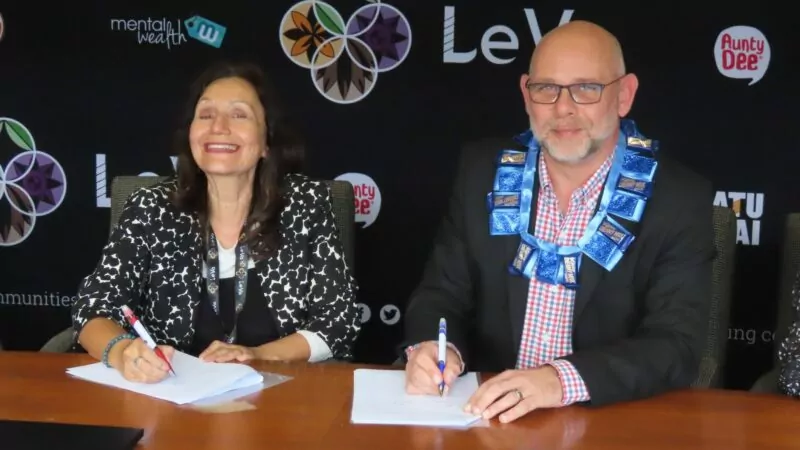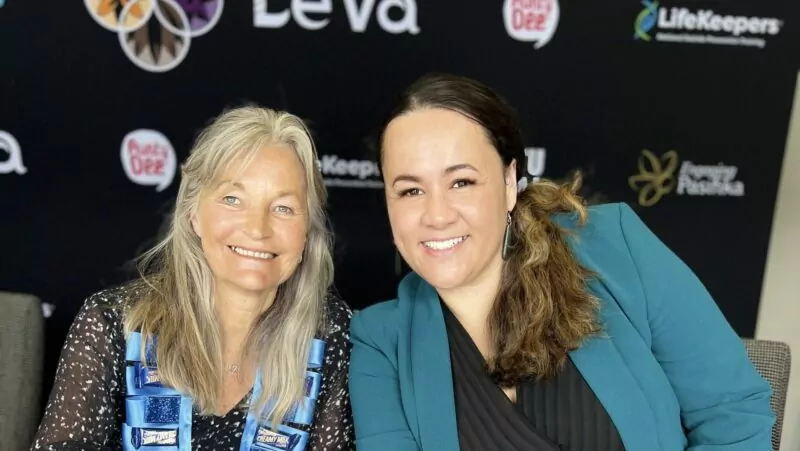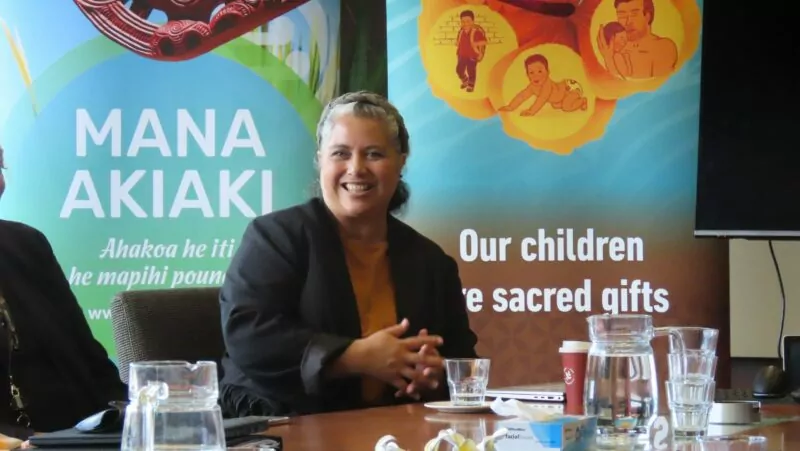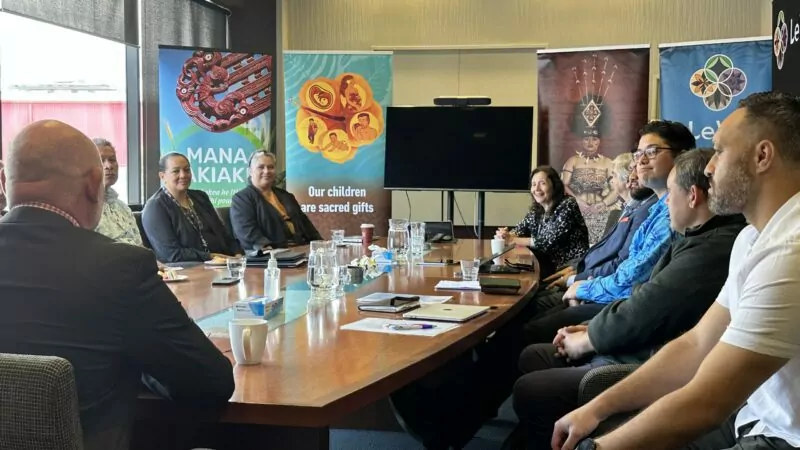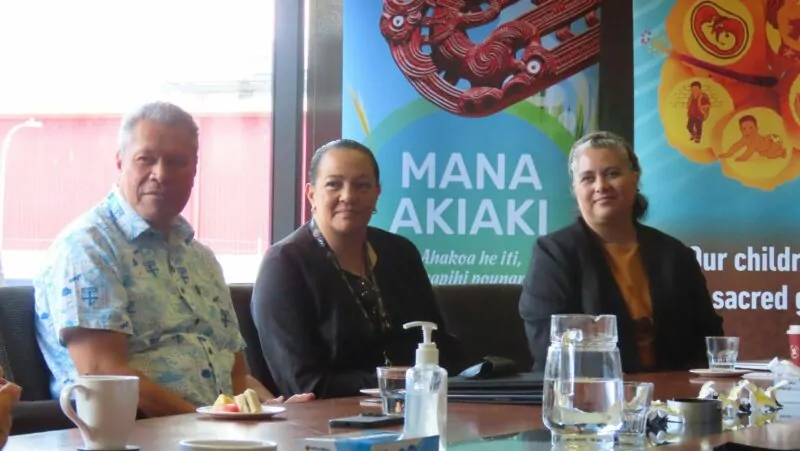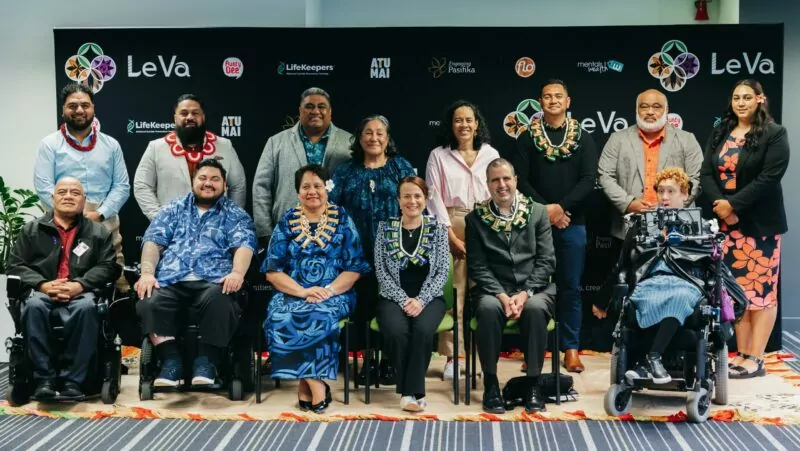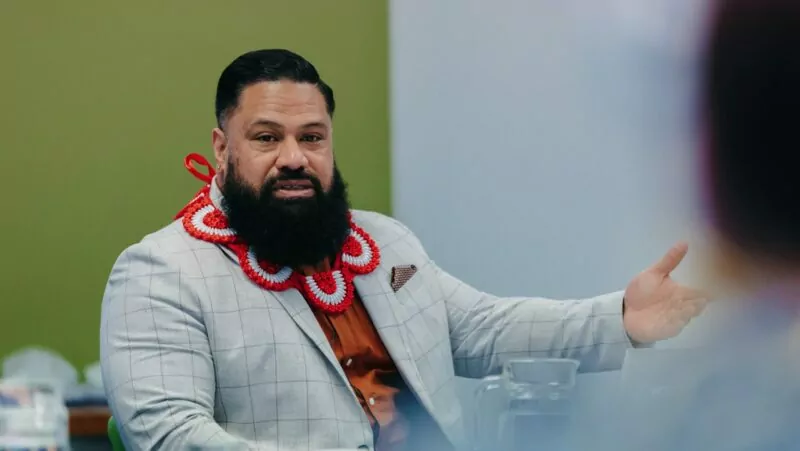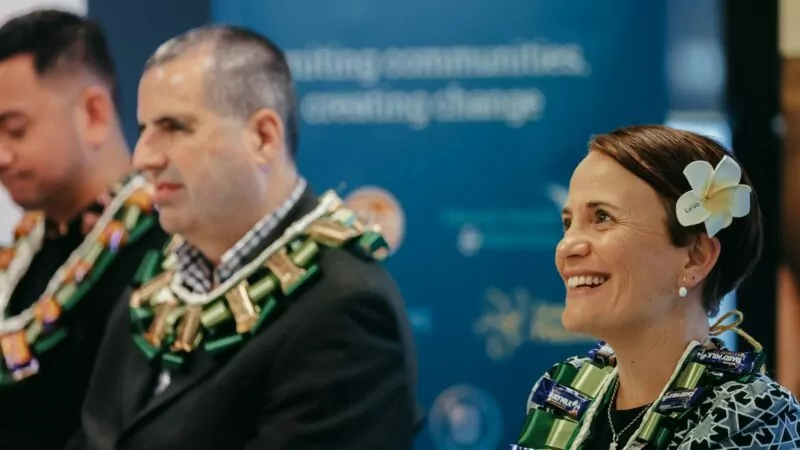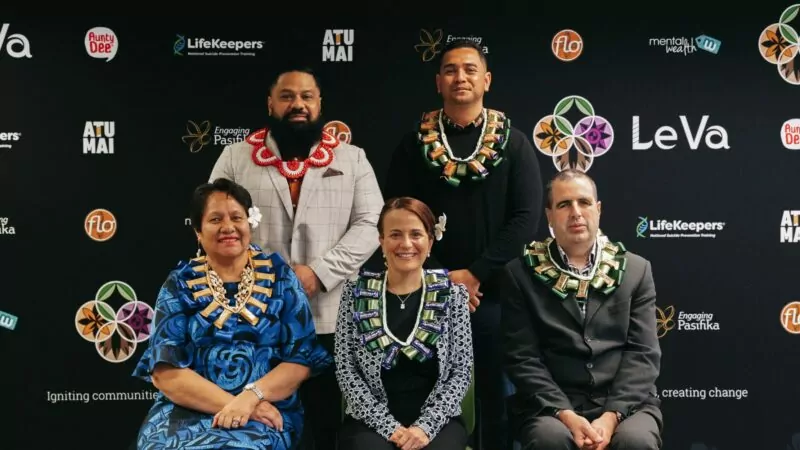Changing the narrative, navigating challenging tides, calling out injustices and centring the voices of Tangata Moana.
In the public health space, Le Va is tasked with creating opportunities for the village to gather, bringing together our Pacific public health workforce and sector providers to strengthen capability and grow capacity. By nurturing these connections and building a thriving workforce, we ensure that “when the coconut tree bears fruit, the village is nourished, and the children will flourish.”
Day One
On Day One of GPS 2025, we were privileged to hear from a powerful line-up of Pacific thought leaders bringing deep expertise and an unwavering commitment to equity, justice and community wellbeing.
We opened with a powerful morning session led by three inspiring Samoan wāhine leaders who reminded us of the importance of putting the growing generation first and staying grounded in purpose.
As Dame Teuila Percival shared, “Don’t fall in love with your business cards or the organisations you work for – fall in love with the children.”
Dr Corina Grey challenged us to reframe how we understand and use data. She spoke to the harmful impact of Pacific people being continually positioned in deficit through statistics and reinforced the need for our communities to lead the analysis and interpretation of data. “For us, by us,” was a powerful call to reclaim narrative control, where Pacific insight and leadership can turn data into solutions, not stigma.
Malaetogia Dr Jacinta Fa’alili-Fidow shared her journey toward completing her PhD, Vā o Tamaiti – a relational resilience framework for Pacific child wellbeing, grounded in Pacific values.
In the afternoon session, Prof. Sir Collin Tukuitonga’s passion for future generations of health workers was admirable. He emphasised that, while political cycles may come and go, we are here to stay and our response must be long-term and grounded in equity, data, justice and Pacific values. His challenge to the sector: “Speak up. Speak out.”
Dr Sione Faletau reminded us that identity and culture are inseparable from wellbeing and that art is not just expression, but an embodiment of who we are as Tangata Moana.
Our Kava Korner was also a much loved feature, thank you to everyone who visited over the two days. A special shoutout to Four Shells Kava Lounge for generously providing the kava and creating space for attendees to connect through this meaningful cultural practice.
The End Game stream was more than a conversation, it was a reaffirmation of the collective strength within our communities, and the transformative power of Pacific leadership in shaping a healthier, more equitable future.
Day Two
Day Two of GPS 2025 brought strong advocacy, honest talanoa and lived experience to the centre. Our speakers challenged us to confront stigma, while elevating the strengths, resilience, and aspirations of our Pasifika disabled communities.
Leuluaiali’i Catherine Poutasi shared her deep expertise on funding models in the disability space, guiding organisations on how to effectively access and utilise funding to deliver better outcomes for our people.
Pakilau Manase Lua reminded us that cultural identity is central to wellbeing. His call was clear Pacific worldviews must be upheld, not sidelined, when shaping policy and services.
Nalei Taufa presented key insights gathered from Le Va’s national talanoa series with Pacific disabled communities. She challenged the system to protect our stories and act on our data, not simply collect it and let it sit unused.
We also celebrated an exciting announcement from Sara-Jane Elika, trustee of Foundation North. Sara-Jane confirmed a new partnership with Le Va, launching a dedicated pool of funding for Pacific disability community initiatives a major step forward in resourcing grassroots solutions led by our own communities.
Our Faiva Ora Community Innovation Fund recipients Joshua Peauafi, Daniel Te’o and Tara Aumalesulu showcased their community-led projects, each rooted in their passions, lived experience and cultural values. Their courage, innovation, and leadership lit up the room, reminding us that the solutions are already within our villages.
After many months of community consultation and co-development with more than 1,000 Pacific leaders, disabled people, their aiga, carers and advocates, Le Va was proud to host the launch of Atoatoali’o – Whaikaha’s National Pacific Disability Approach on April 24.
Atoatoali’o represents hours of talanoa and contributions from Pacific communities across Aotearoa New Zealand to uplift the wellbeing goals and aspirations of Pacific disabled people and ensure their voices are heard.
From February to April 2024, Le Va and the Faiva Ora Leadership Group led a nationwide series of talanoa across Aotearoa, creating culturally grounded, safe spaces for Pacific communities to share openly and honestly.
Atoatoali’o is the result of this powerful process. It reflects the authentic voice of Pasifika disability communities capturing their lived experiences, challenges, cultural identity and hopes for a more inclusive future.
Hon Louise Upston, Minister for Disability Issues, and Paula Tesorioro, Chief Executive of Whaikaha – Ministry of Disabled People, were guests of honour at the launch event held at Le Va’s office in Manukau.
Minister Upston said of the event, “I was privileged to launch Atoatoali’o — the National Pacific Disability Approach — a major milestone for the community.
“The priorities from this work will help shape the refresh of the New Zealand Disability Strategy later this year.”
Denise Kingi-‘Ulu’ave, chief executive of Le Va, said, “It has been an honour for Le Va to engage with our Pacific disability communities and the wider sector around the motu, and to hear their stories of stories of strength, challenges, resilience and success.
“We are grateful for the trust Whaikaha has placed in Le Va to coordinate the talanoa series and host the launch of Atoatoali’o, with strong leadership shown by our senior manager for public health and disability – Ben Tameifuna – and his team.”
You can learn more about Atoatoali’o and download the full document at Whaikaha’s website.
Over two impactful days in April, around 700 people joined together at the Due Drop Events Centre in Manukau for Le Va’s Global Pacific Solutions 2025 conference – uniting Pacific leaders, academics, international guest speakers, workforce and community members in a tour de force of strengths-based solution seeking.
Bringing to light tough topics such as child trafficking, suicide prevention, climate change, child sexual abuse, equity for disabled people and the ever-growing demand for mental health and addiction support workers, GPS 2025 was an event that opened minds, challenged the status quo and inspired hope for all who attended.
At times, the audience was moved to tears upon hearing transformative stories of overcoming adversity, fighting for justice and connecting to culture in a way that enhances our true selves.
Inspirational plenary speakers and breakout presenters communicated passionately, sharing their expertise to advance the knowledge of all who listened.
When opening the ‘Nurturing our Children’ plenary panel at GPS 2025, Le Va’s chief executive, Denise Kingi-‘Ulu’ave, said, “It is both an honour and a solemn responsibility to welcome you to today’s panel discussion on child sexual abuse and child trafficking across the wider Pacific.
“This is a conversation that demands our full attention, our collective expertise and most importantly, our unwavering commitment to action.
“The Pacific is home to diverse and resilient communities, but it is not immune to the global crises of child sexual exploitation and trafficking.”
We know that the solutions lie within our communities – GPS 2025 was an opportunity to bring together into one space the hearts, spirits and minds of hundreds of people, all eager to ignite change and promote the power of Indigenous intelligence.
Over the coming weeks, Le Va will be sharing many of the insights and solutions that were explored throughout Global Pacific Solutions 2025, with gratitude to everyone who was present and contributed to this important kaupapa.
Please subscribe to our eNewsletter to learn more: www.leva.co.nz/subscribe
The 2024 round of Le Va’s Faiva Ora Community Innovation Fund recently closed, allocating up to $10,000 each to community-based initiatives that will enhance access to disability support services and promote the wellbeing of Pasifika disabled people.
This year, Le Va received a record number of applications – the highest since the fund’s inception. We are elated to share the five incredible initiatives that have been selected for funding.
Congratulations to our 2024 recipients:
- Northland Pacific Islands Charitable Trust – Fale Pasifika Te Tai Tokerau
Collaborating with NorthAble and Disability Support Services to raise awareness across Northland.
- ASD Dads
Cultural sessions to support Dads with autistic kids. Weaving cultural values into parenting techniques.
- Vaini Doves Talanoa Kalapu
Using Kava to enhance talanoa around stigma and discrimination for disabled people.
- Pacific Autism Support Group – PASG Canterbury
Events to celebrate and promote awareness of neurodiversity across Canterbury.
- Kulupu Nasaleti
Home visits with elderly people for cultural/clinical/spiritual care and talanoa sessions within branches of church community in Auckland.
These projects are set to make a strong and lasting impact, promoting empowerment and enhancing the wellbeing of Pasifika disabled people across the country.
About the fund
Le Va’s Faiva Ora Community Innovation Fund was created to support Pasifika disabled people, their families and carers to access resources and support to lead fulfilling lives.
Each year, the fund allocates up to $10,000 to help Pasifika community groups that enhance community development and ensure the further wellbeing of Pasifika disabled people.
Le Va works in partnership with Whaikaha – Ministry of Disabled People to administer the fund and mobilise community groups to help Pacific people with disabilities to live life the way they choose and promote inclusion and acceptance.
The fund also prioritises initiatives that focus on meeting the needs of Pasifika young people and show collaboration with support services and community groups.
We are excited to see our successful Faiva Ora Community Innovation Fund recipients breathe life into their initiatives in the coming year.
Learn more about Le Va’s Faiva Ora Community Innovation Fund.
In Whangārei, Auckland, Hamilton, Wellington and Christchurch, our team invited Pasifika youth with disabilities, Pasifika people on the autism spectrum and their aiga or whānau (family) to share their experiences of the disability support system.
The goal was to understand the challenges faced by those groups and individuals and to capture things that are working well along with those that are not, and how to make the system and sector better.
Following the talanoa session in Ōtara on 3 April, Le Va’s senior manager for disability and public health, Ben Tameifuna, said, “Last night, we gathered with passion and purpose to discuss the National Pacific Disability Action Plan for autism and youth with disabilities.
“This plan, co-developed with our incredible community, will pave the way for vital changes in the disability support system and services for Pacific people.”
All the stories that have been shared will inform the National Pacific Disability Action Plan to help Whaikaha advocate for changes that Pacific disabled people and their families have been calling for.
For anyone who was unable to attend a talanoa session, there is an online survey available on Whaikaha’s website: National Pacific Disability Action Plan Survey.
_______________________________________
Learn more about other ways Le Va supports the Pacific disability community: Disability support
The National Pacific Disability Action Plan, co-developed with the community, will help guide changes to the disability support system and services for Pacific people that Whaikaha manages. By co-developing this plan with the community, we make sure that the Pacific community’s needs and goals guide important changes that understand and appreciate their culture.
On Tuesday 19 March we were privileged to hold our first Talanoa session with community where insights regarding life experiences were shared freely and met with compassion by our Faiva Ora Leadership Group and Le Va team.
Our next Auckland Talanoa is on the 3 April from 6-8:30pm at a location to be advised on the Le Va Facebook account. Kai (food) will be provided.
We would love to extend a warm invitation to Pasifika youth with disabilities, Pasifika people with Autism and their aiga or whānau (family) to share their experiences with us. We want to understand the challenges you and your aiga face, current systems that are working well along with ones that are not, and how we can make the system and sector better.
Here is the link to register for our April Talanoa.
In attendance are representatives from the Pacific Behavioral Health Collaborating Council (PBHCC), which is a partnership between six US affiliated Pacific Island jurisdictions – the Republic of Palau, Guam, the Commonwealth of the Northern Mariana Islands, the Republic of the Marshall Islands, American Samoa and the Federated States of Micronesia.
PBHCC’s vision is: ‘Pacific Island communities, families and individuals who are substance abuse free and have access to optimal mental health care.’
Their visit to Tāmaki Makaurau Auckland is co-hosted by Le Va, the Global Leadership Exchange (GLE) and Te Pou to connect Pasifika leaders in the fields of mental health, addiction and disability.
Denise Kingi-‘Ulu’ave, Chief Executive of Le Va, said of the event, “Last year Le Va and GLE signed a memorandum of understanding with the intention of growing an international network of strong leadership to support the wellbeing of our communities in Aotearoa.
“This international exchange is the first tangible outcome arising from our partnership, which we hope will lead to improved wellbeing outcomes for all of our Pacific peoples.”
The week-long event began with a traditional Tongan kava ceremony to welcome the international guests from PBHCC, who included Reyna Saures (Vice President), Dr Theresa Arriola (Director), and James Arriola (Executive Director).
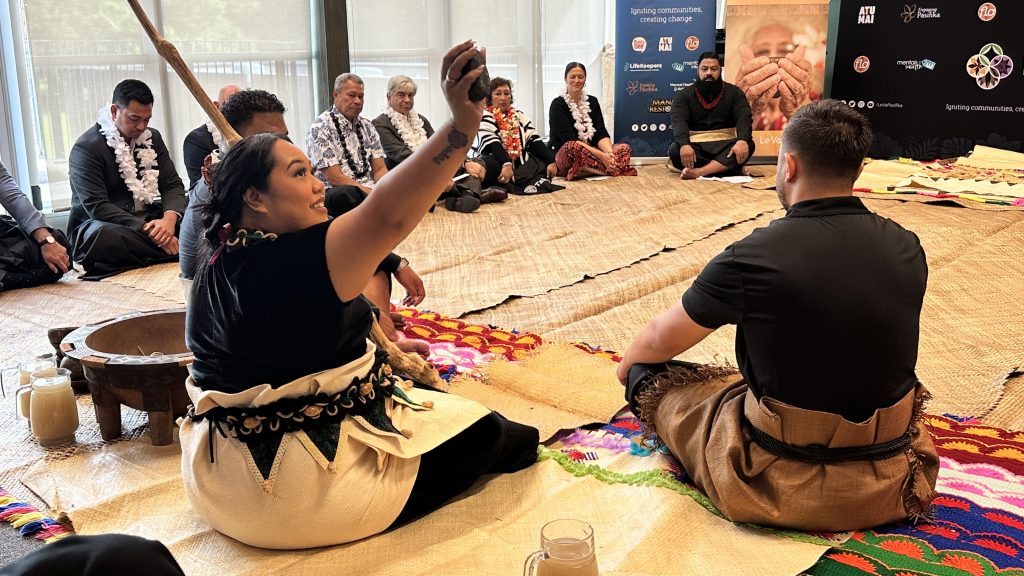
Acting US Consulate General Alexia Branch and Mara Hosoda Su’a (US Pacific Regional Engagement Specialist, US Consulate General Auckland) joined the welcome, alongside representatives from Health New Zealand Te Whatu Ora, Whaikaha – Ministry of Disabled People, the Ministry for Pacific Peoples, and Manatū Hauora – Ministry of Health.
Discussions and presentations followed on international collaboration and implementation strategies to enhance mental health and addiction services globally.
Future collaboration between the organisations present will connect leaders in these sectors to help find solutions for our communities in Aotearoa, the Pacific and around the world.
The talanoa (conversation/discussion) was hosted by charitable trust K’aute Pasifika in their Pacific style fale in Kirikiriroa Hamilton. Members of the community, disability service providers and those with lived experience were in attendance and all contributed a wealth of knowledge that will be pivotal in shaping the new plan.
The goal was to learn the challenges experienced by our Pacific disabled people, what systems are currently working well or not so well, and to make the system and sector better for them and their aiga or whānau.
Le Va’s Faiva Ora leadership group enables Pasifika people with disabilities to advance and champion Pasifika disability issues by having their views represented at the highest levels in Aotearoa New Zealand.
By co-developing the National Pacific Disability Action Plan with the community, we ensure that the Pasifika community’s needs and goals guide important changes to the disability support system and services.
There is a series of talanoa scheduled across the country and Whaikaha invites all Pacific disabled people and their aiga to attend and share their experiences.
Dates for future talanoa can be found on the Whaikaha website. You can also contact Whaikaha directly at pacificpeoples@whaikaha.govt.nz or text 4206.
______________________________
Learn more about Le Va’s Faiva Ora leadership group.
“O le tele o sulu, e maua ai figota” is a Samoan proverb meaning, “Through collaboration, the most difficult challenges can be overcome.”
Partnership and collaboration are integral to the success of Le Va, Aotearoa’s leading Pacific primary prevention organisation, which is why Le Va’s Board and senior executives were pleased to sign a memorandum of understanding with the International Initiative for Mental Health Leadership (IIMHL) and the International Initiative for Disability Leadership (IIDL) this week.
Chief Executive of Le Va, Denise Kingi-‘Ulu’ave said, “Given the prevailing uncertainty in the world, many have voiced their concerns regarding its potential impact on people’s mental wellbeing. To best address these issues, we believe that strong leadership is crucial, which is why we are eagerly anticipating our collaboration with IIMHL and IIDL.”
Signing the MoU signals Le Va’s expansion into a global arena of leadership, representing Pasifika interests to achieve the best outcomes for Pacific people with disabilities and lived experience of addiction and mental health challenges.
Steve Appleton, the President and Chief Executive of IIMHL/IIDL said of his trip to Aotearoa New Zealand and Australia that it was an opportunity to formalise the collaboration with Le Va, and make progress in working together with Pasifika leaders.
“Through sharing experiences and learning from one another, we can build stronger communities, stronger services, and services that can respond more effectively to the needs of our increasingly diverse populations,” Steve said.
IIMHL and IIDL connect international mental health leaders to help them share innovations and solve problems in the areas of mental health, addiction and disability around the globe.
Nine countries are members of the group, with New Zealand being a founding member of IIMHL and the Netherlands the latest country to join IIDL, alongside Australia, Canada, England, the Republic of Ireland, Scotland, Sweden and USA.
Le Va supports Pasifika families and communities to unleash their full potential, bringing more than 15 years of experience to the primary prevention of suicide, violence, mental health and addiction, and strengthening the Pasifika public health workforce.
Led by their Chief Executive, Paula Tesoriero, members of Whaikaha’s executive leadership team, including Ben O’Meara, Tofa Gush and Dr Alfredo Adams, engaged with the Faiva Ora group with the goal of open dialogue.
Senior Manager for Public Health and Disability at Le Va, Ben Tameifuna, welcomed the guests with the Tongan saying “Fofola e fala kae talanoa e kāinga”, or rolling out the metaphorical mat for dialogue with kin and declaring a safe space for talanoa (talk).
Le Va works alongside community groups to reduce negative stigma and promote inclusion and acceptance by developing positive narratives about disability. The Faiva Ora leadership group plays a role in advancing and championing Pasifika disability issues by having their views represented at the highest levels in New Zealand.
Whaikaha was set up in partnership with the community, providing leadership on issues affecting disabled people with the goal of transforming the disability system in Aotearoa.
Attendees at what was the first of many talanoa sessions expressed excitement for what the future holds as all three groups look forward to the development of a new Pacific National Disability Action Plan over the coming months.
